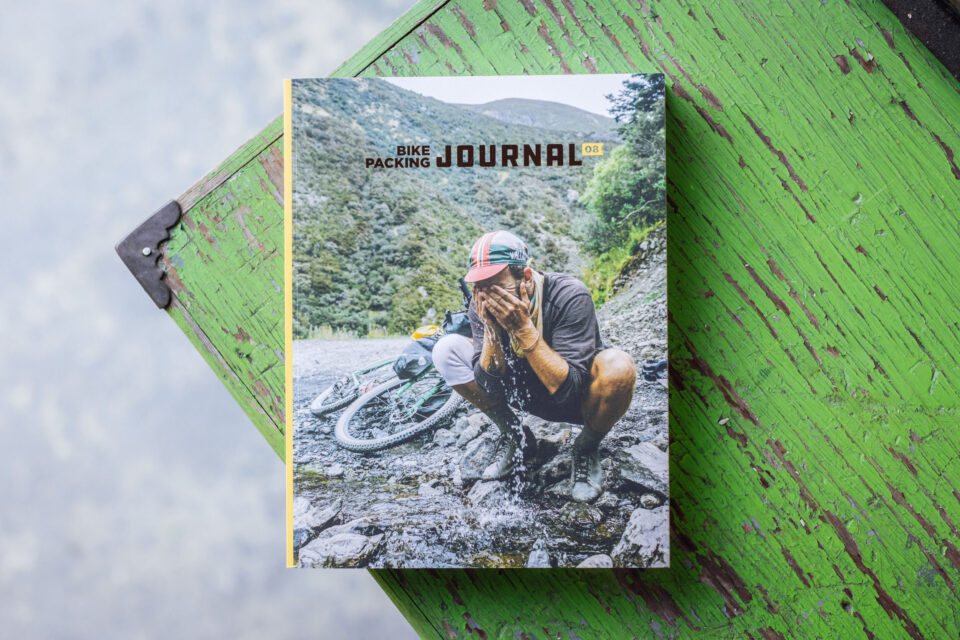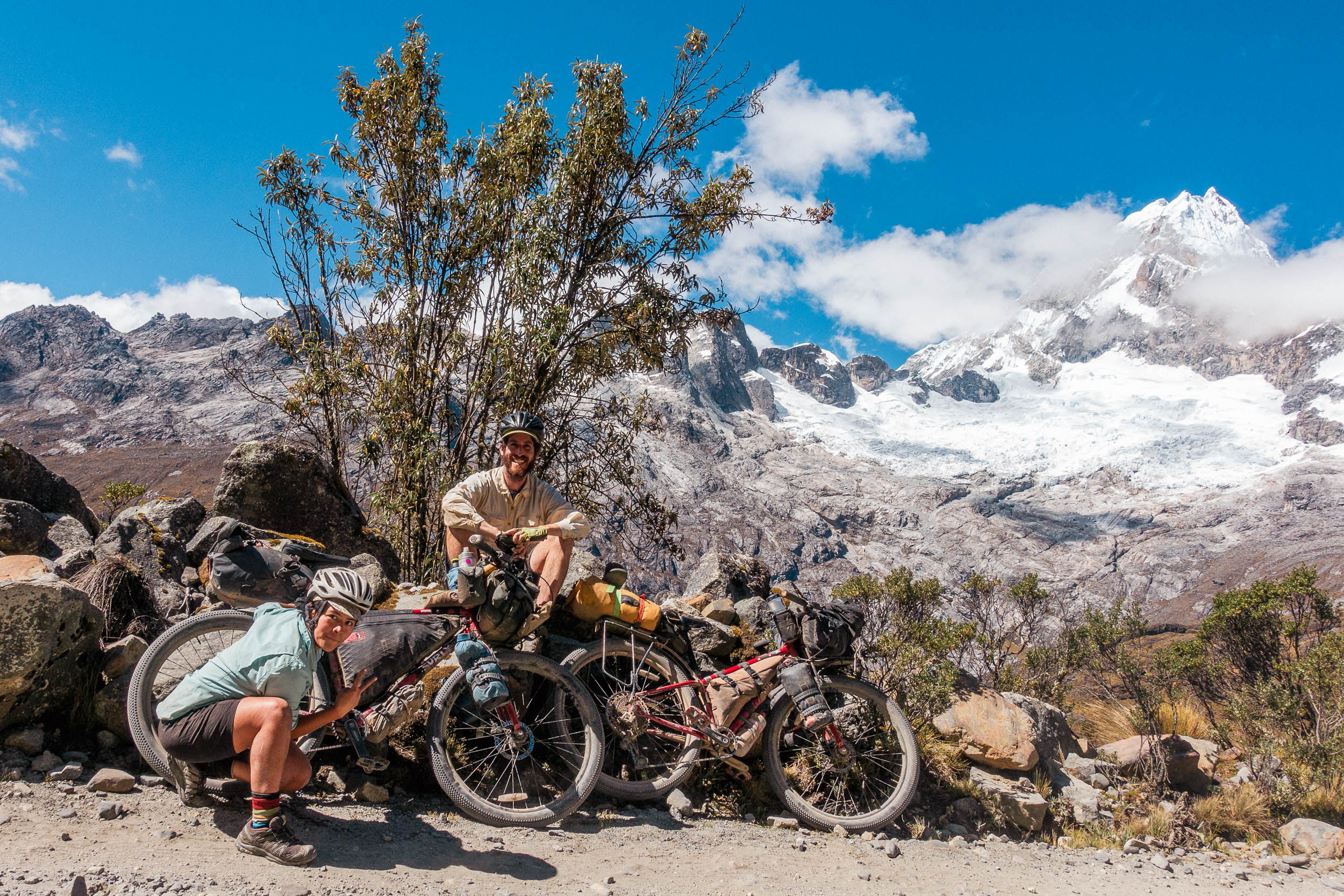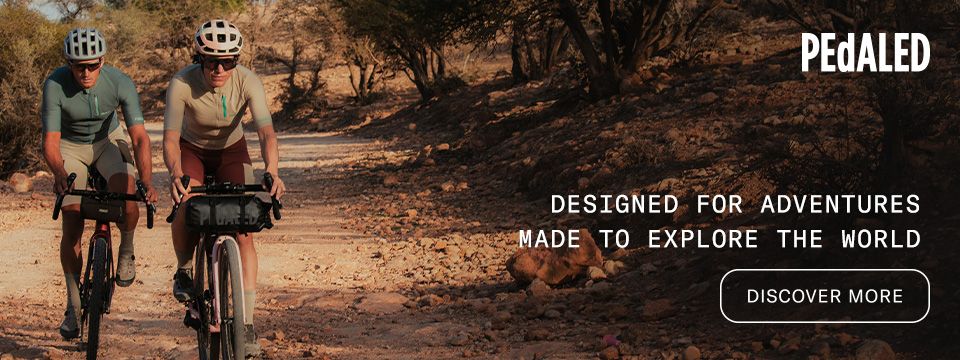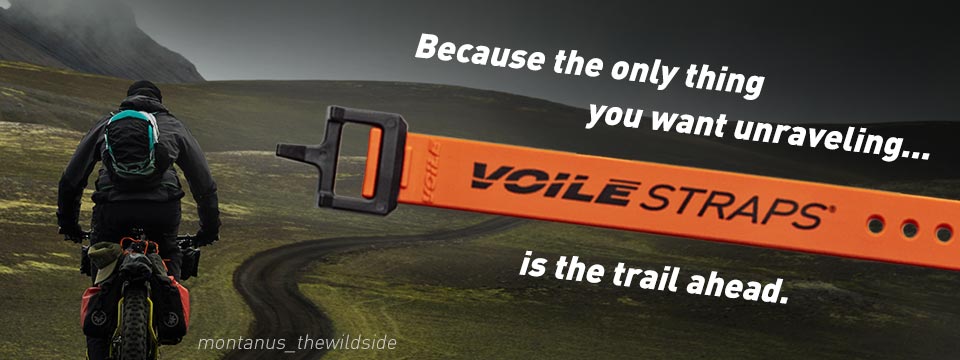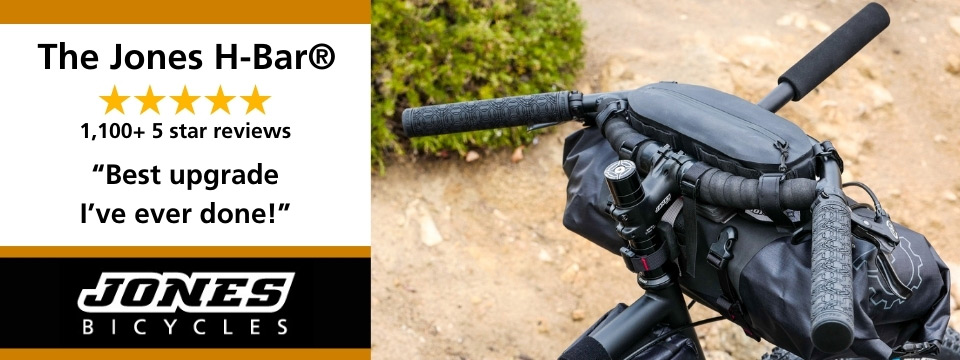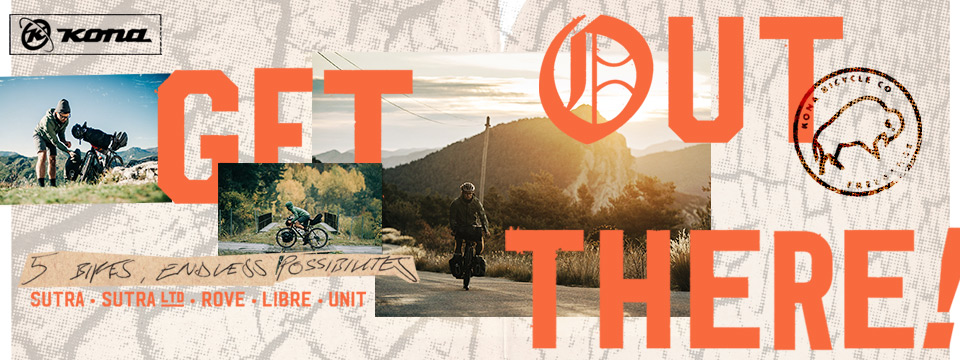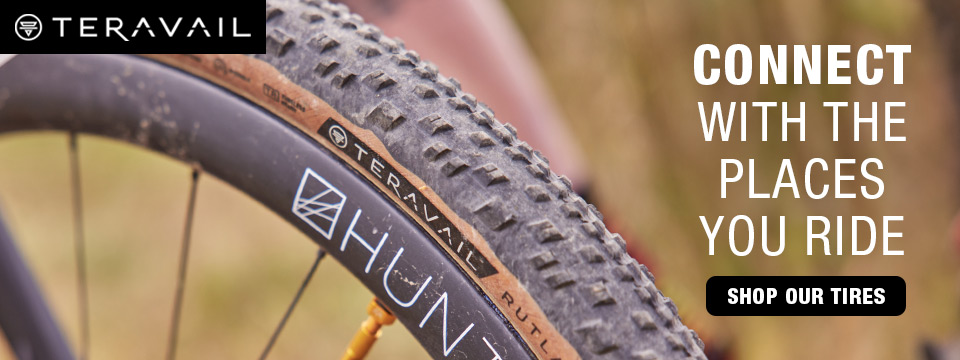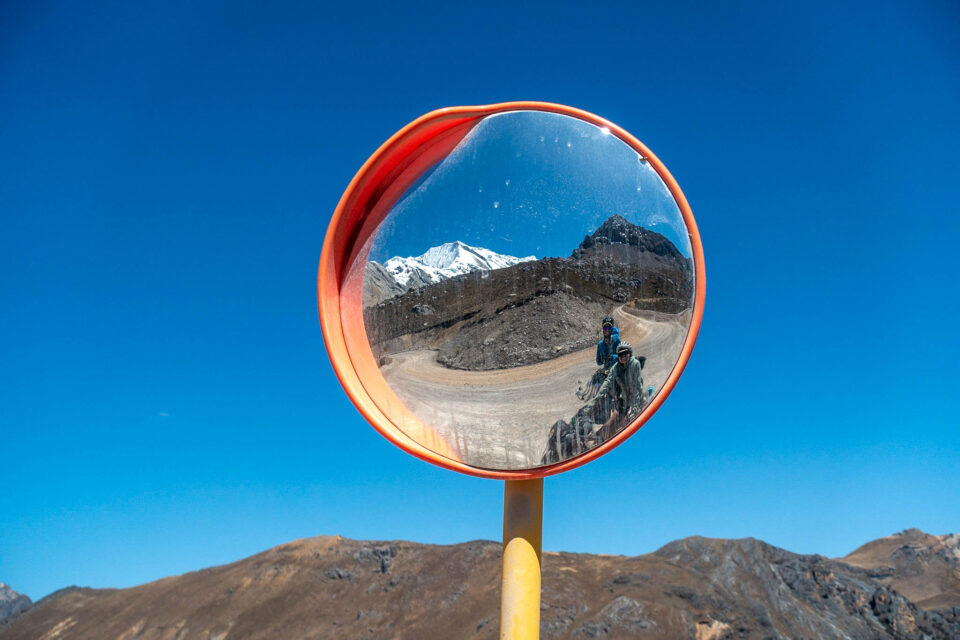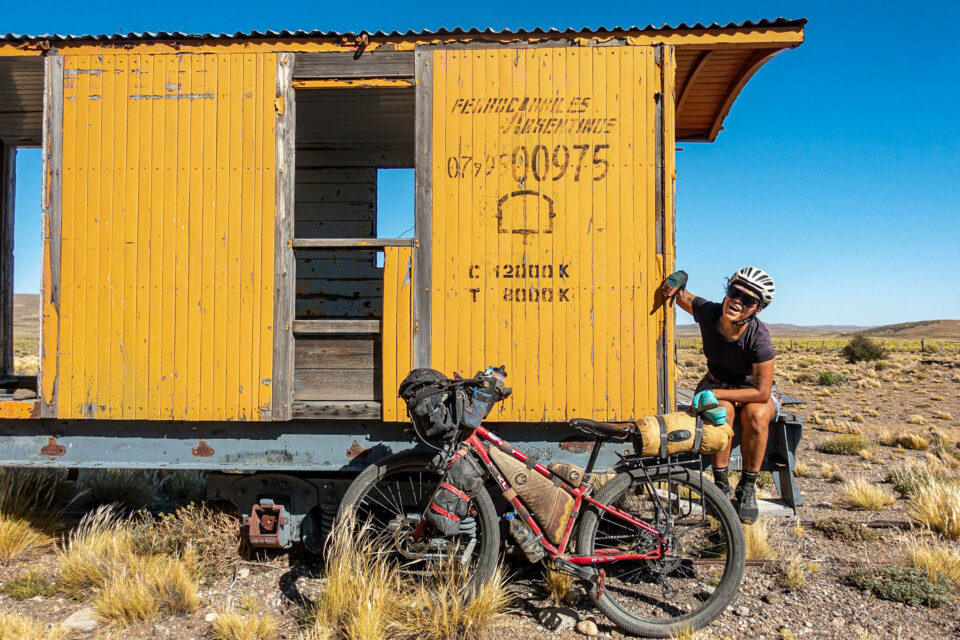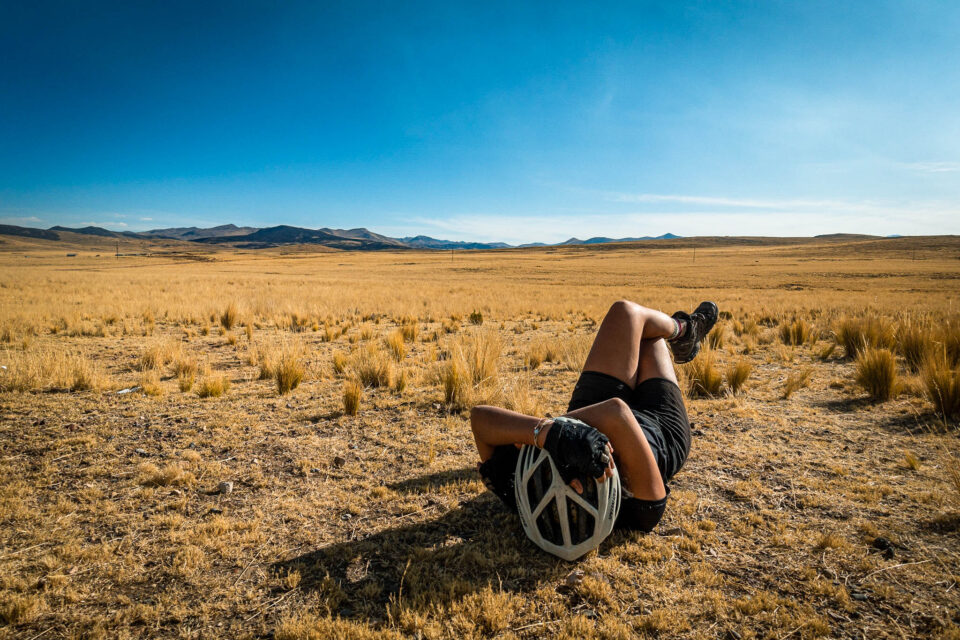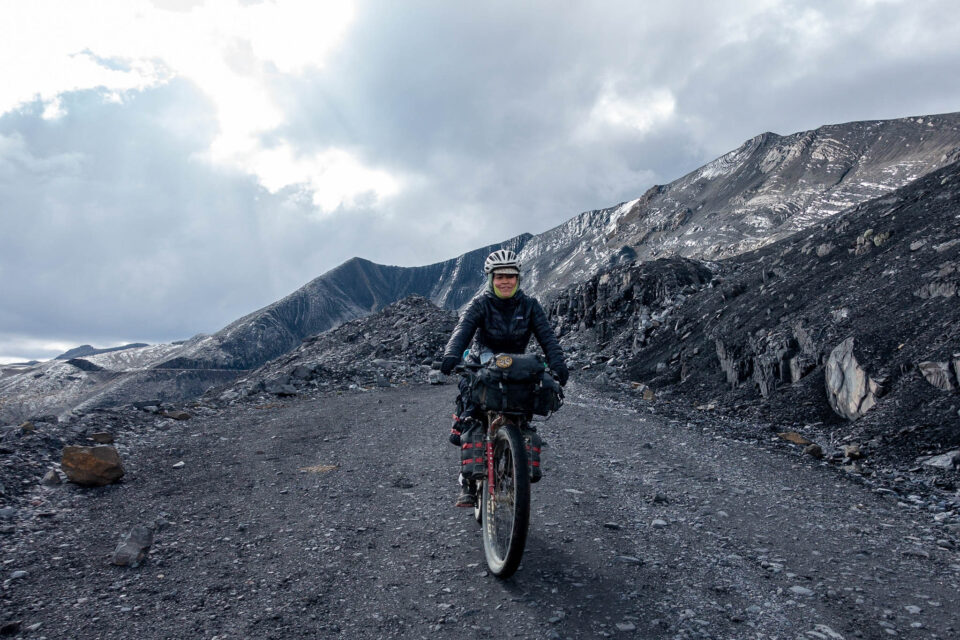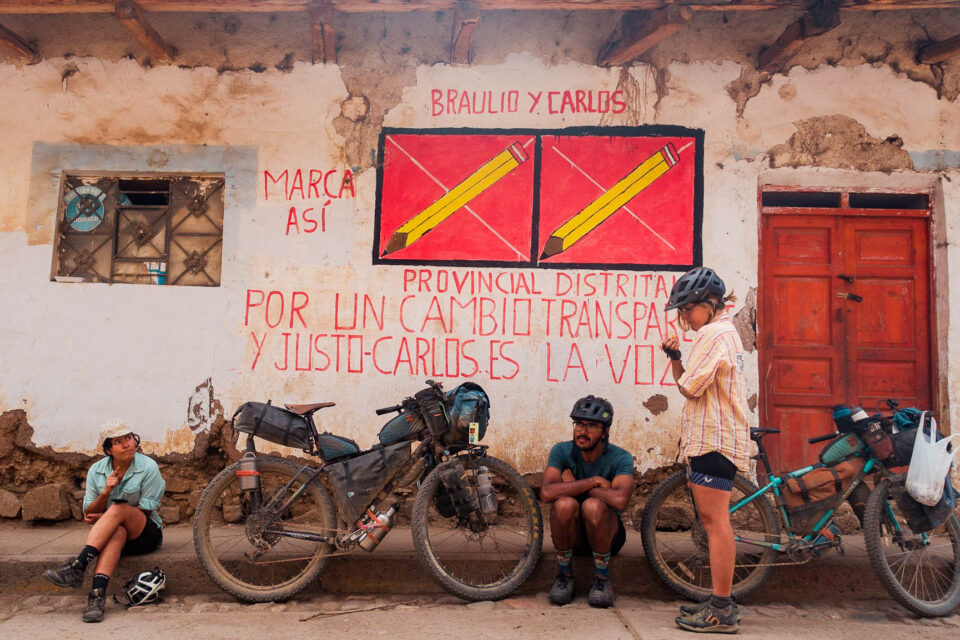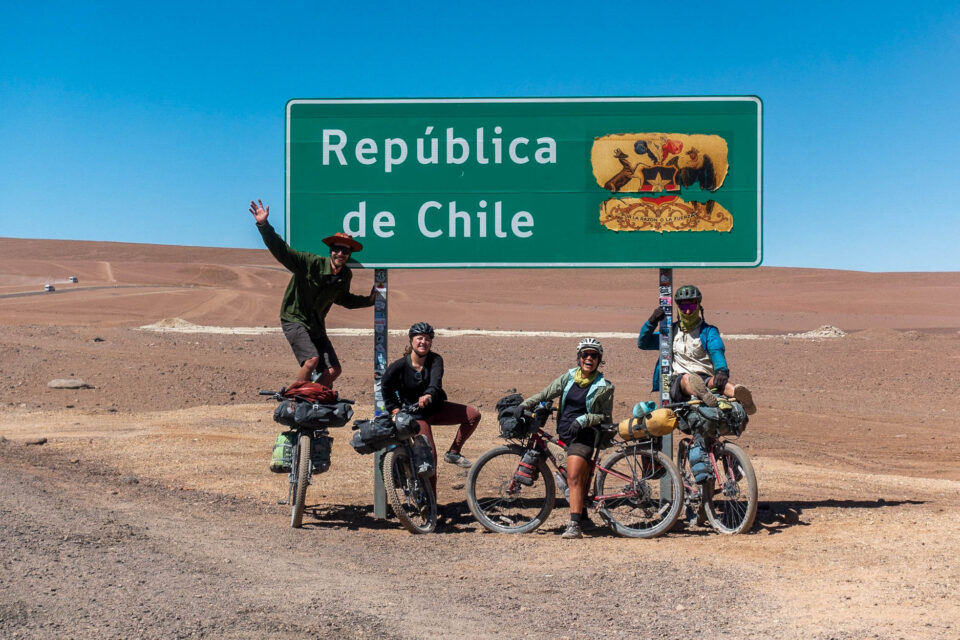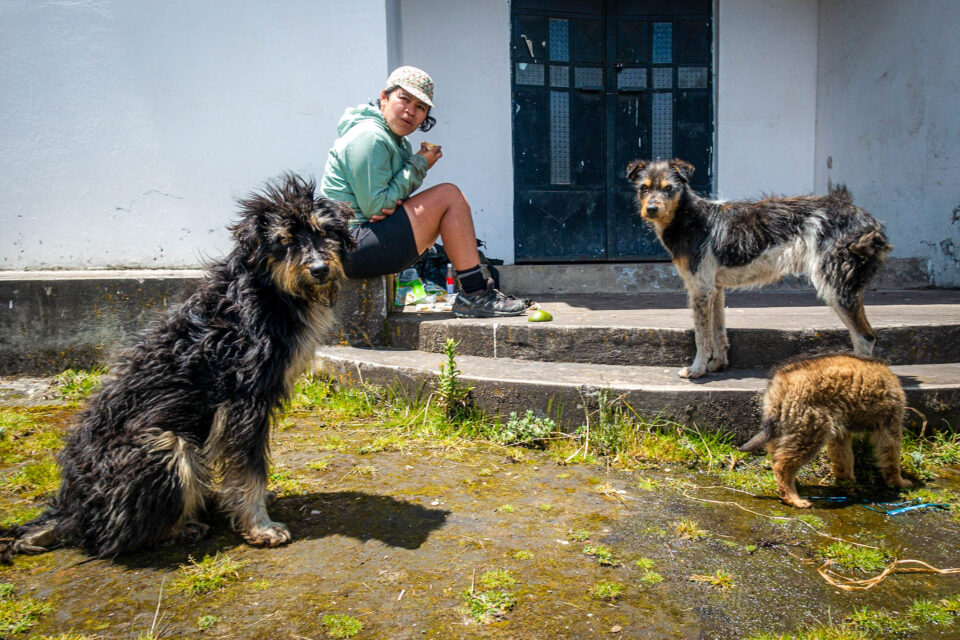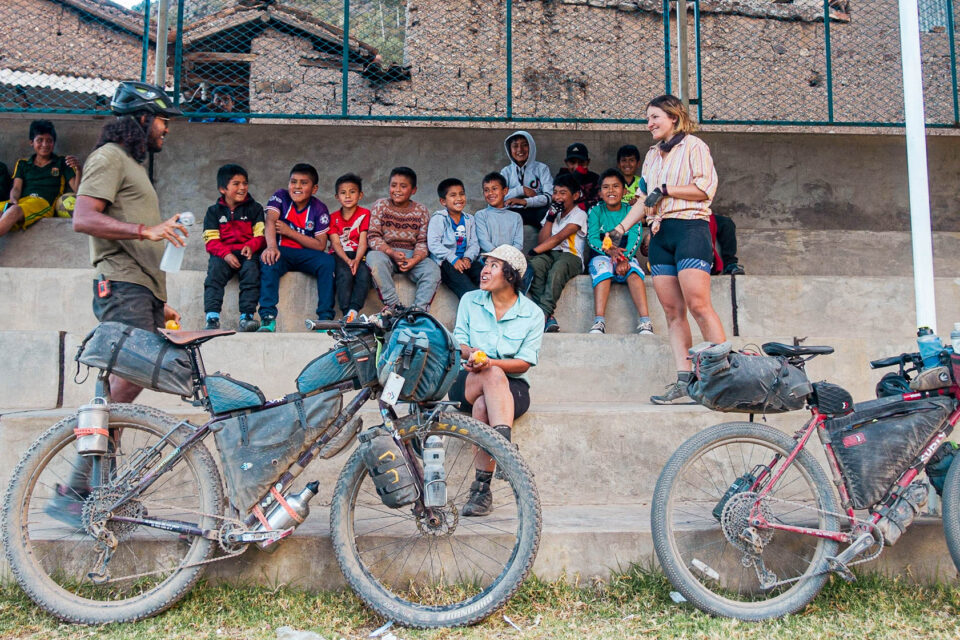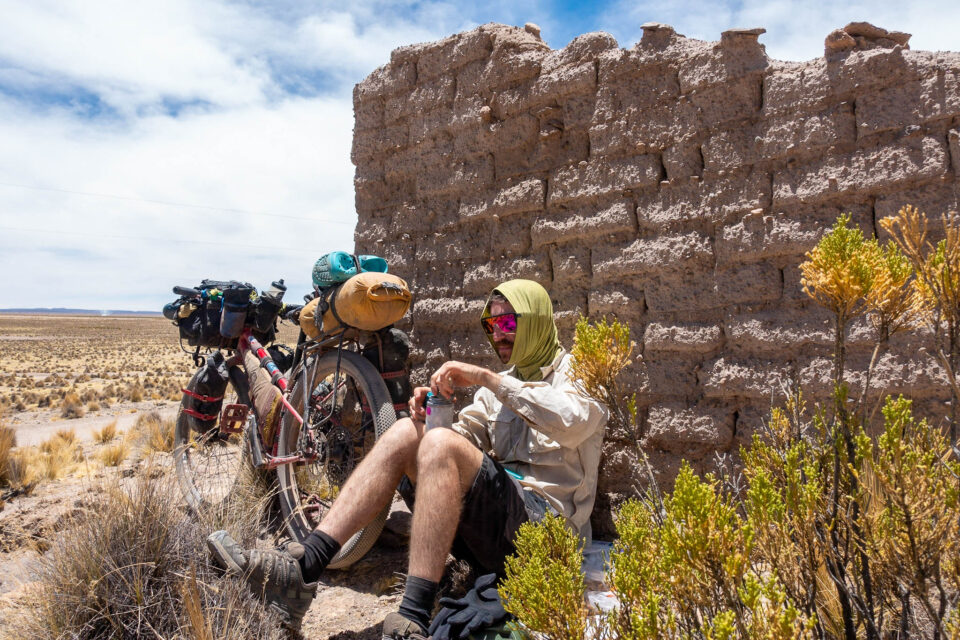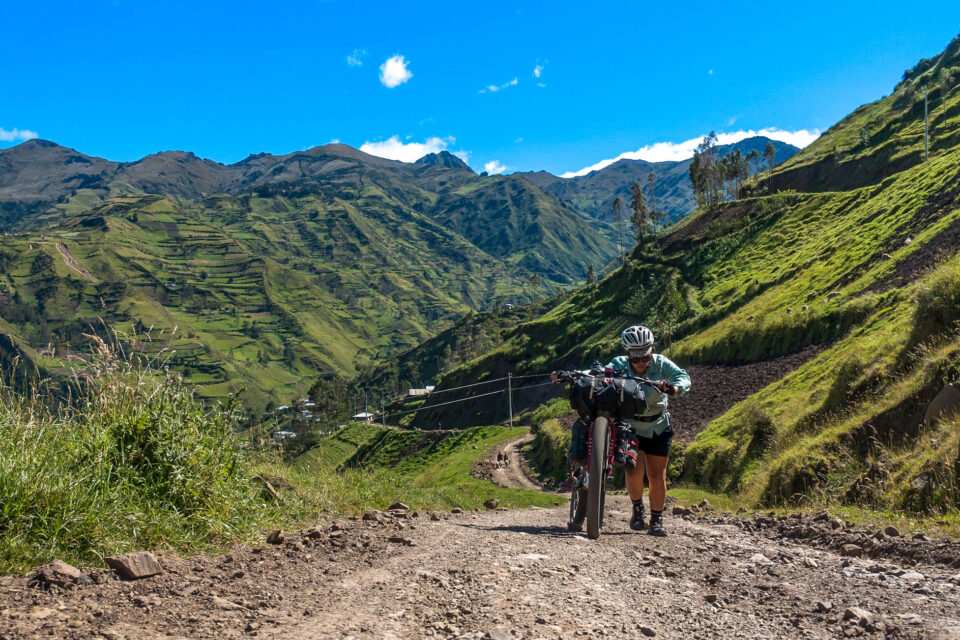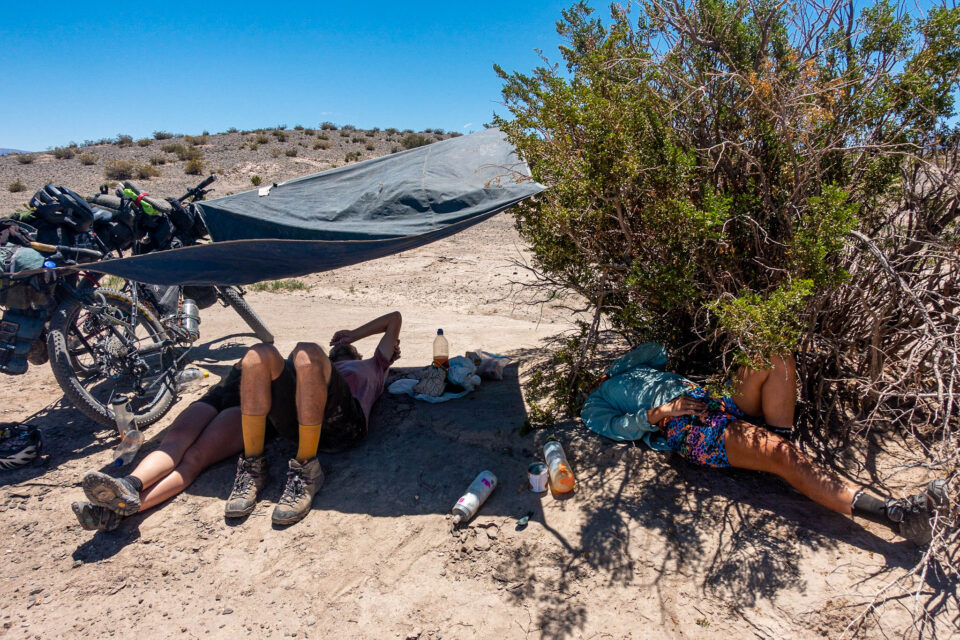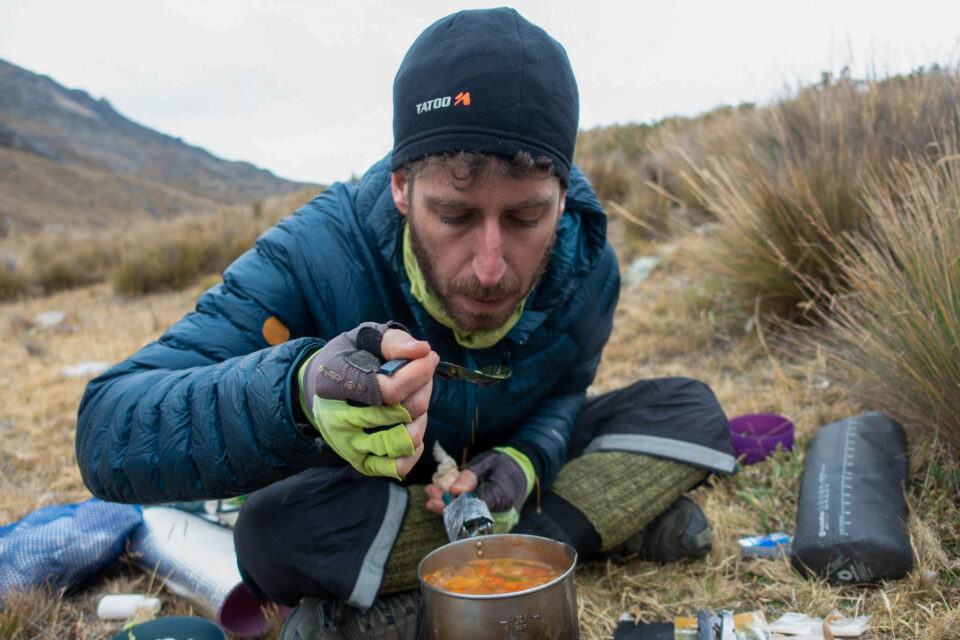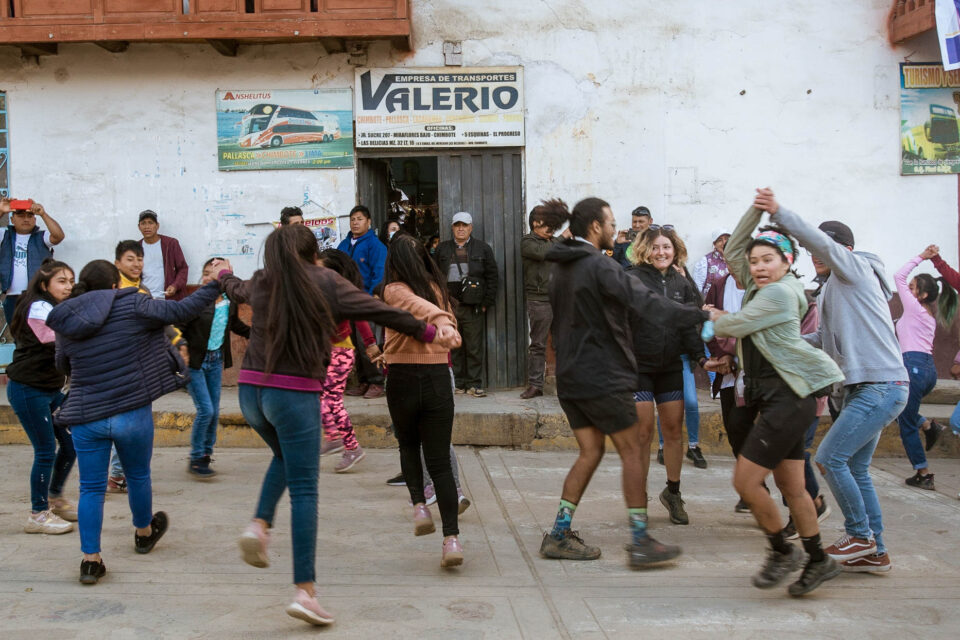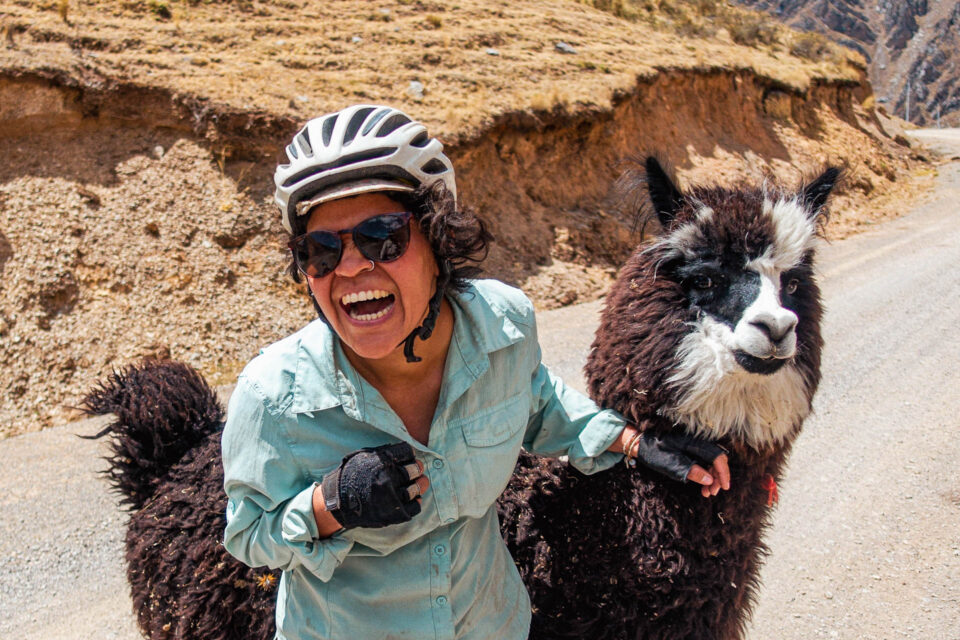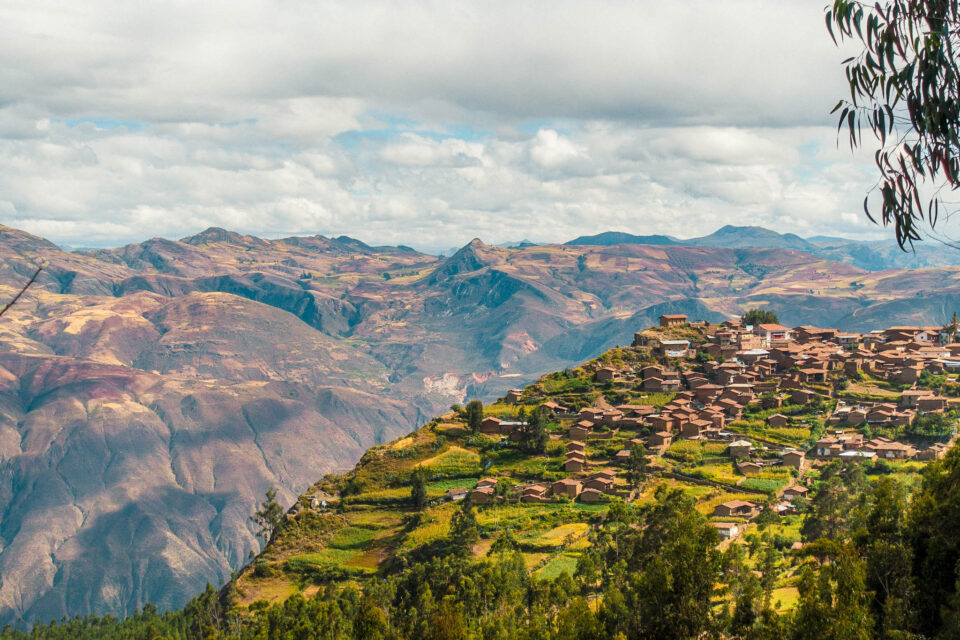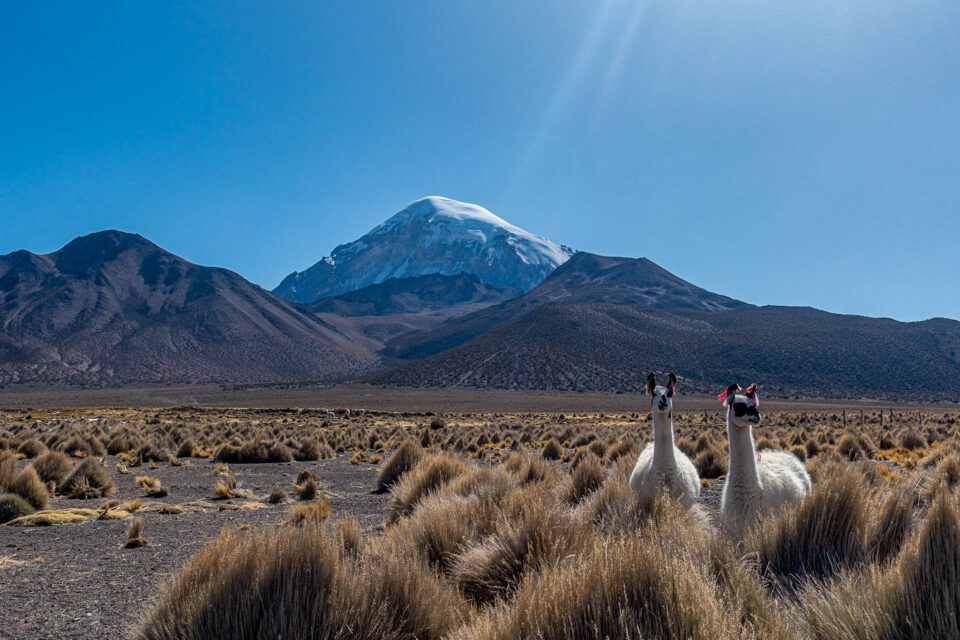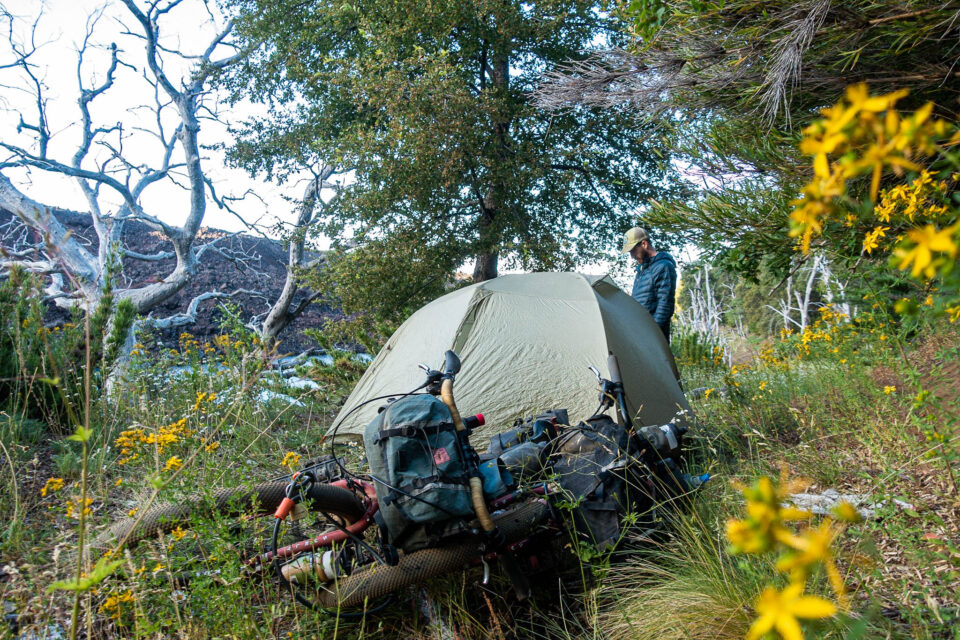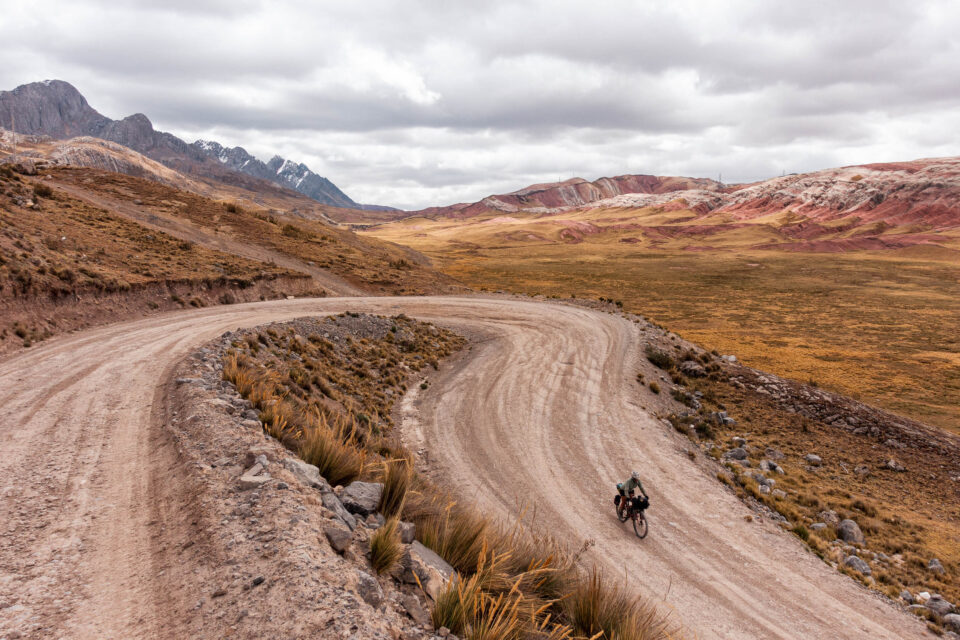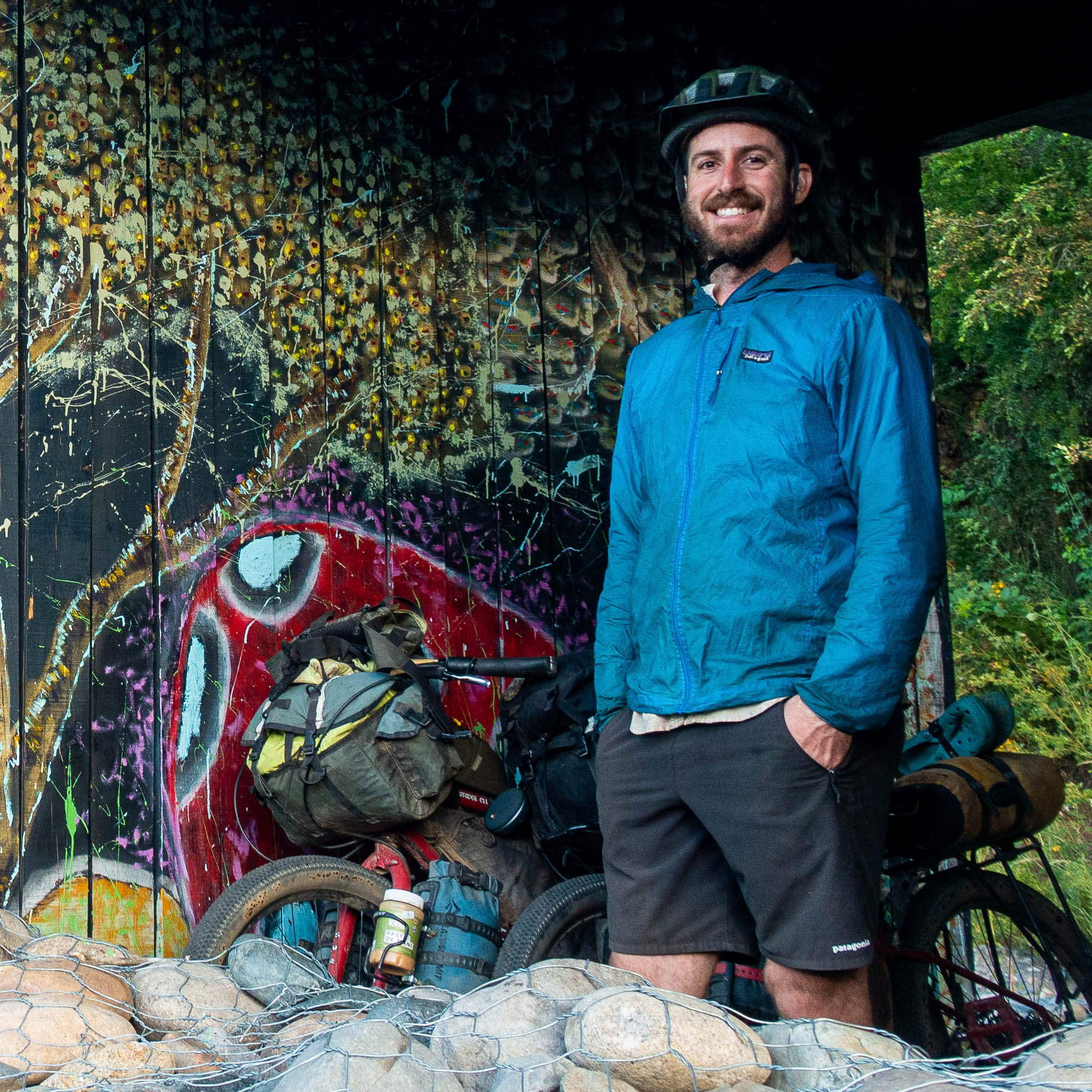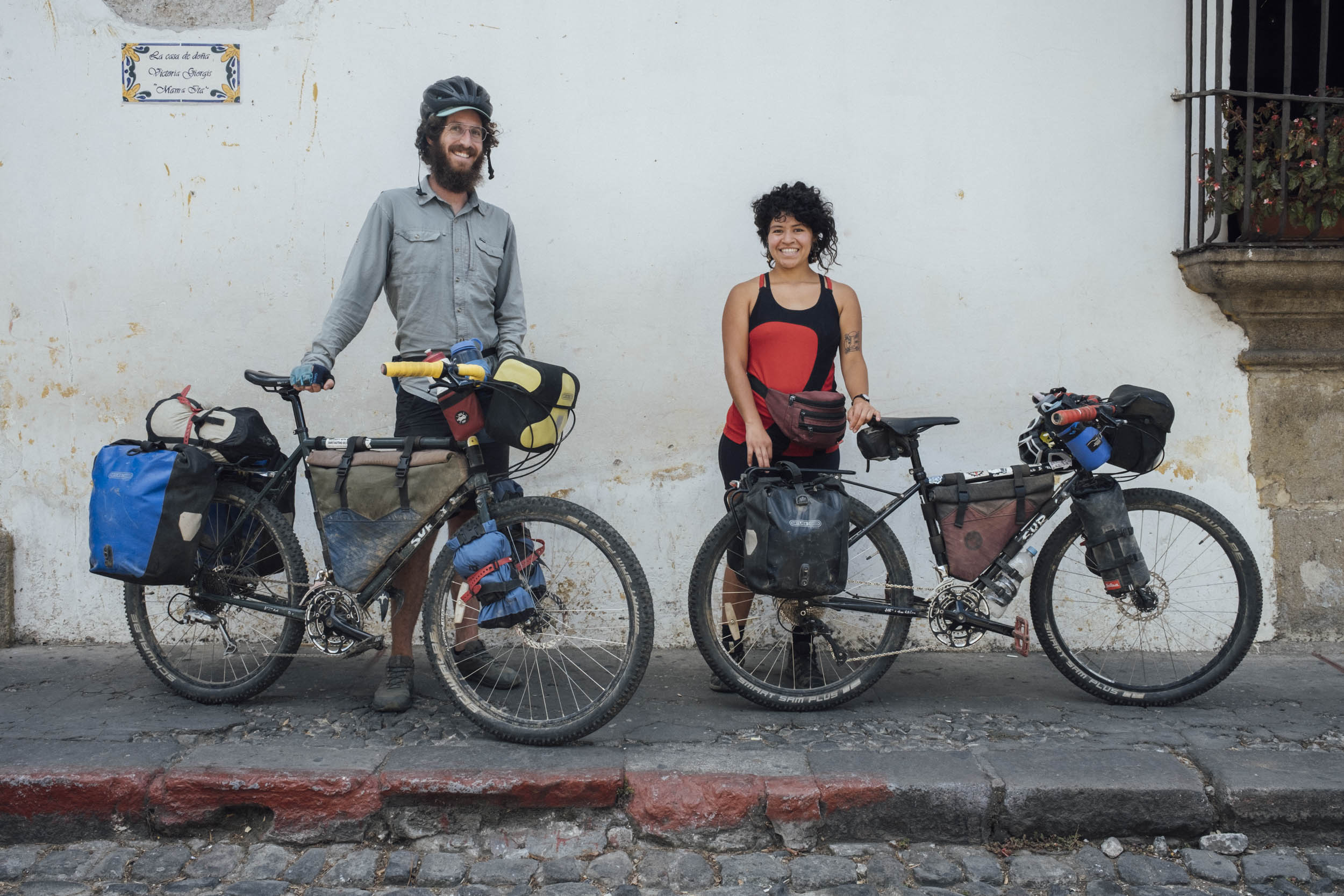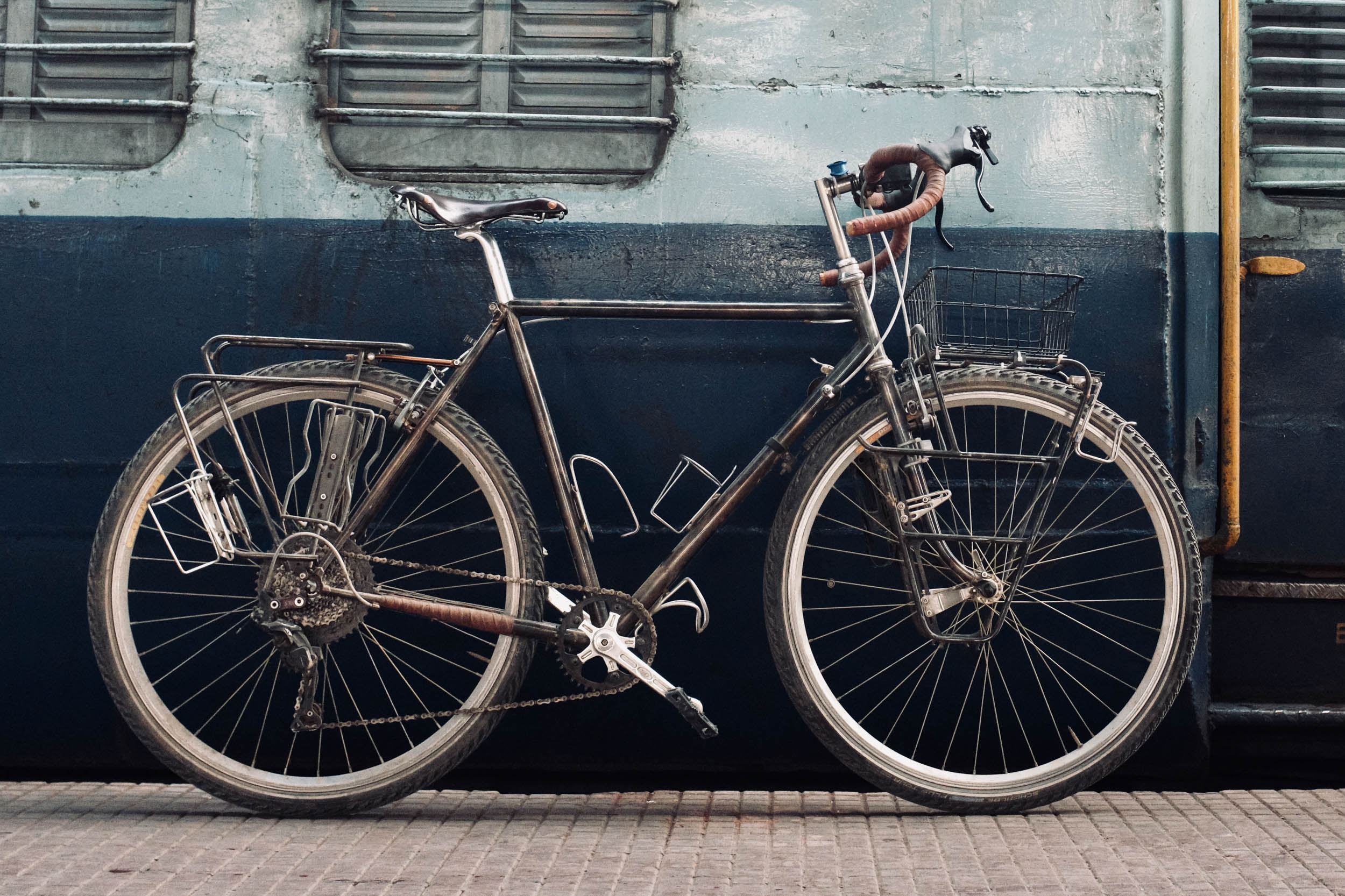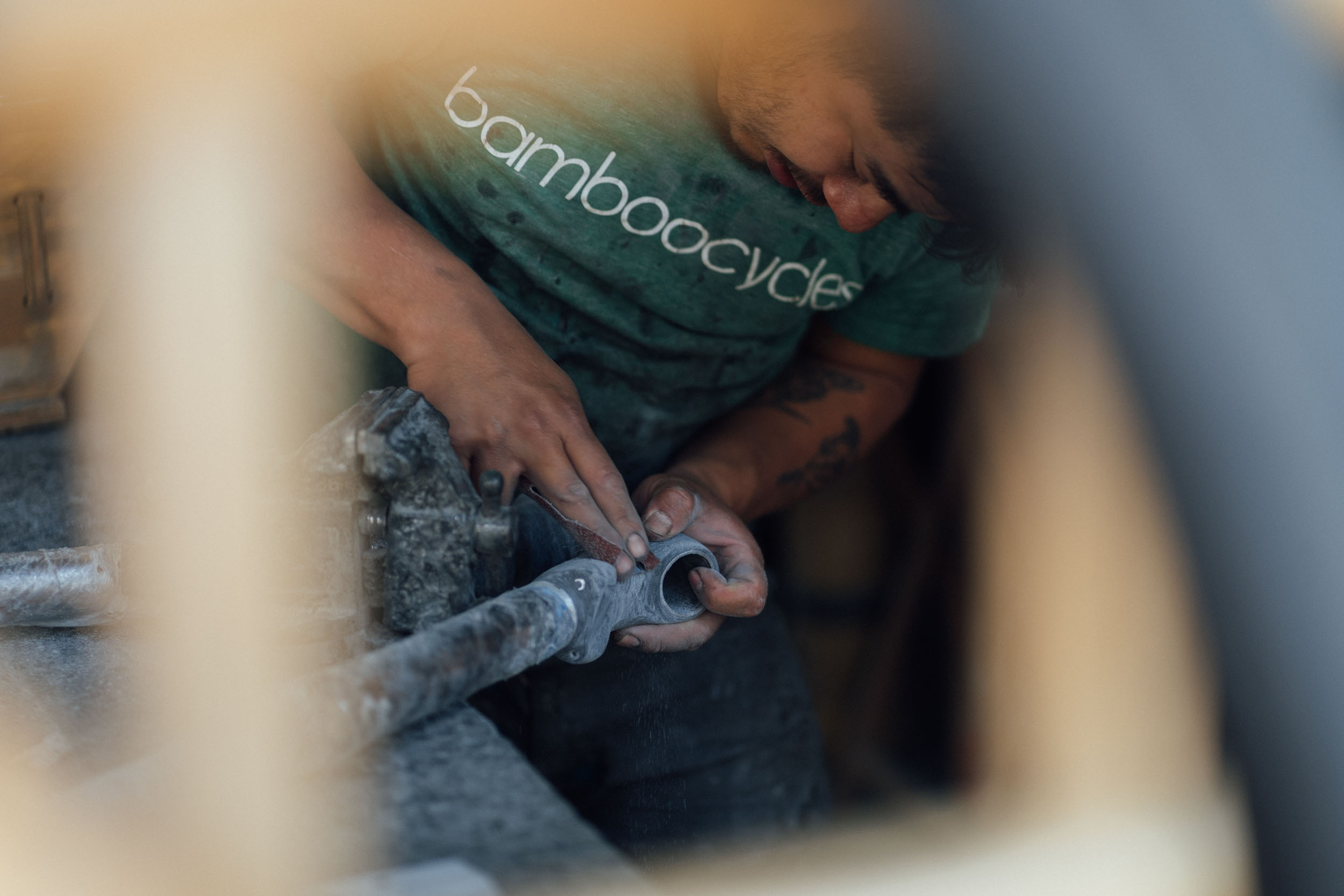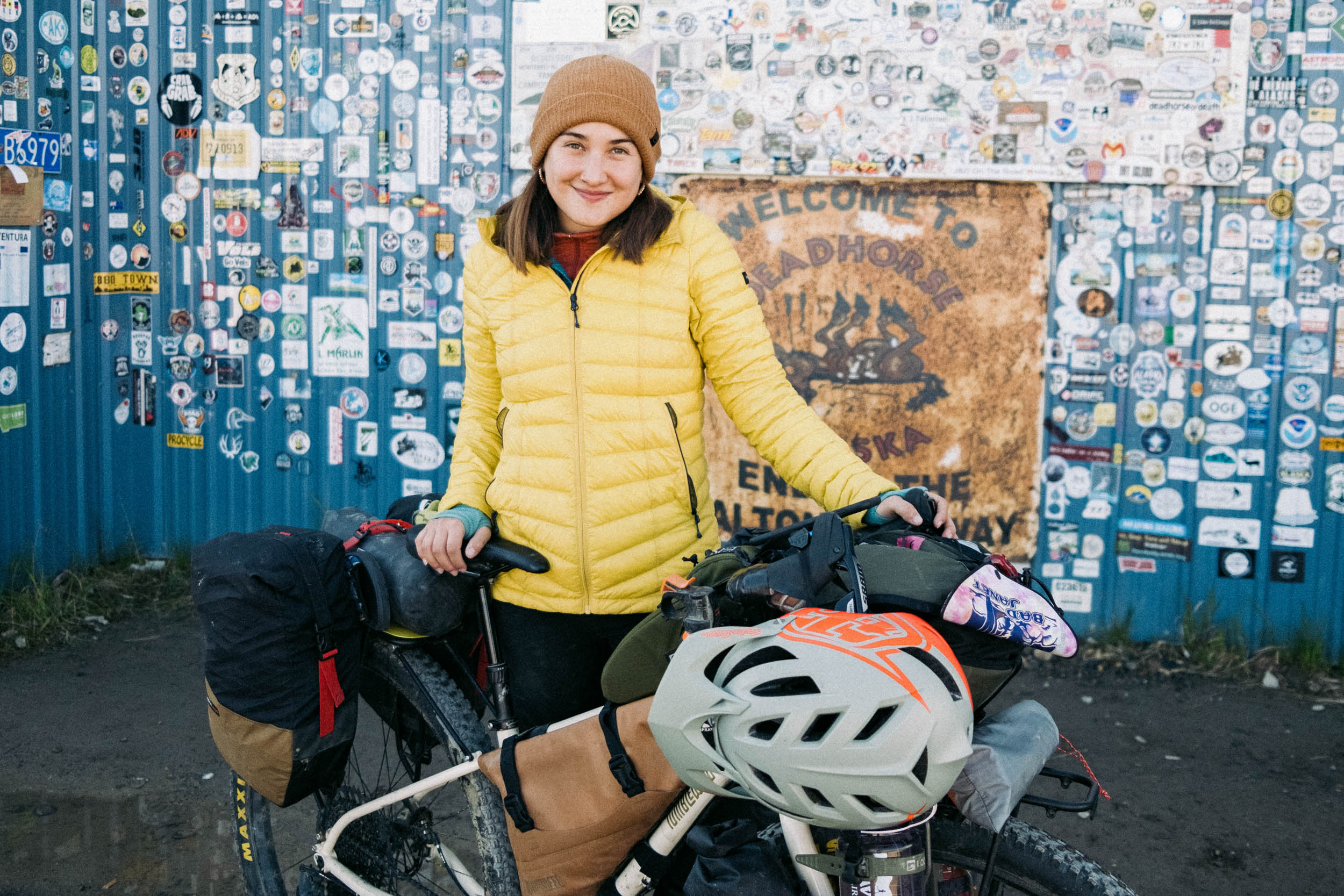Surviving (and Even Thriving!) with a Bikepacking Partner
Share This
Following a successful three-year ride from Mexico to Argentina with his partner Andrea Molina, Jake Dacks put together this seven-part guide to navigating a relationship while pedaling through ever-changing environments and experiences. Find his collection of useful tips for bikepacking with a partner and a gallery of images from Central and South America here…
Words by Jake Dacks, photos by Jake Dacks and Andrea Molina
After a brief email exchange in May of 2020, my partner Andrea and I found ourselves on the phone with a representative of the Marriage Bureau of the Superior Court of Washington, D.C. He was in a rush to clock out for the day, but he figured he had a few minutes to marry us. After assuring him that we weren’t related by blood—and promising to send a $25 check—we agreed to the legally binding vows and looked at each other wondering if that was it. While our COVID “wedding” happened without much fanfare (other than stomping on an empty jar of pasta sauce—a bit of an adulteration of a Jewish custom), we had big honeymoon plans.
Over the course of the next three years, in fits and starts, we’d be riding our bikes from Mexico to Argentina. The tent would be our first shared home, and we’d be learning about long-distance bikepacking together. While we have lots of stories about the experiences we had along the way, we felt that one of the most important aspects of the trip was learning how to relate to each other under such extreme circumstances for multiple years.
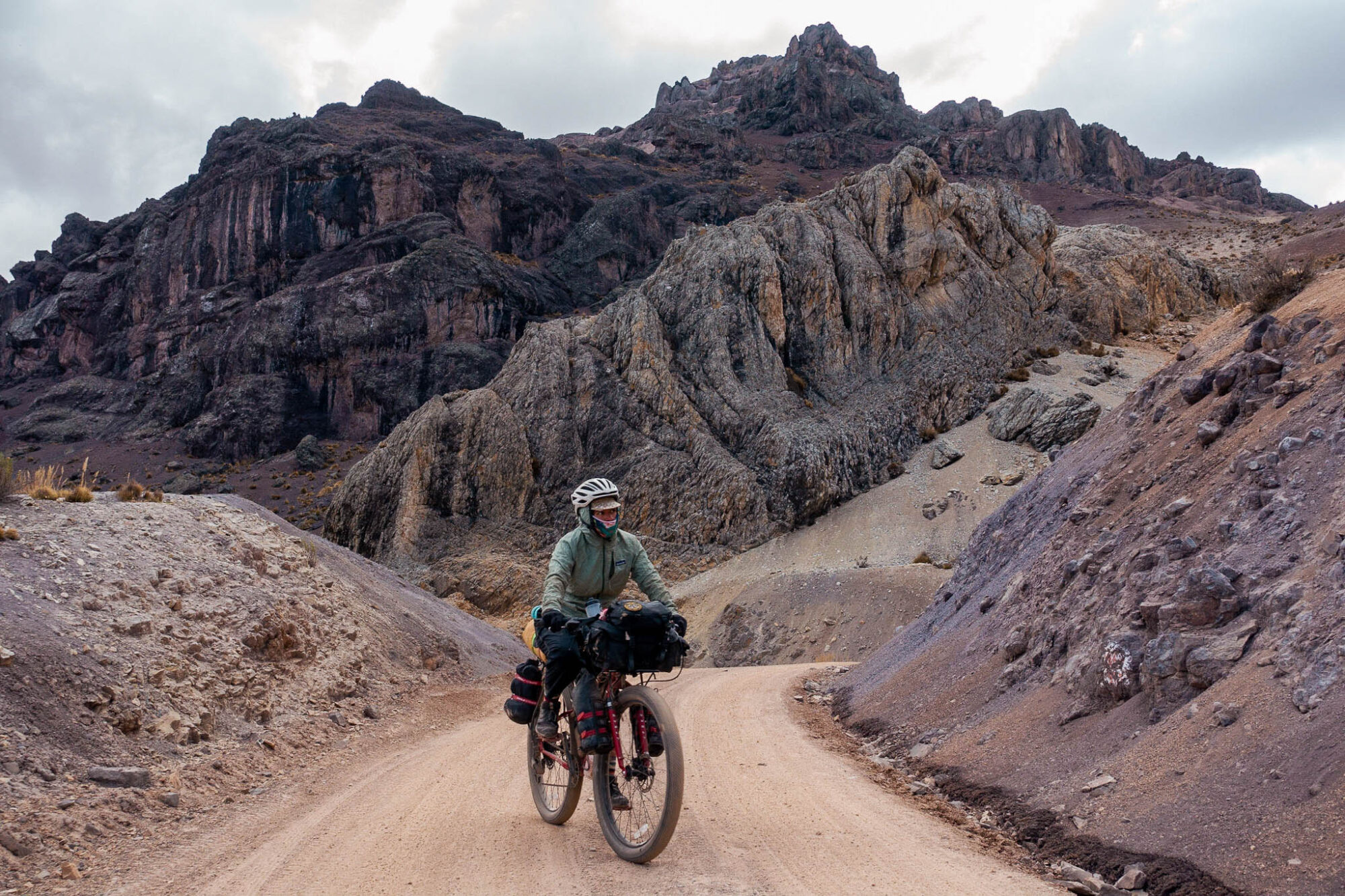
There are many amazing resources about which bike to take, how to pack, and which routes to follow, but we found all that to be the easy part. For us, it was much more difficult to balance our emotional and psychological states and continue to show one another (and ourselves) love and compassion on a consistent basis. I feel like I’m the right person to write this because Andrea and I didn’t always do a good job. We got into fights. There were tears. We doubted ourselves. But when we finally rode into Ushuaia, the southernmost city in the world, neither one of us could have imagined undertaking the trip with anyone else.
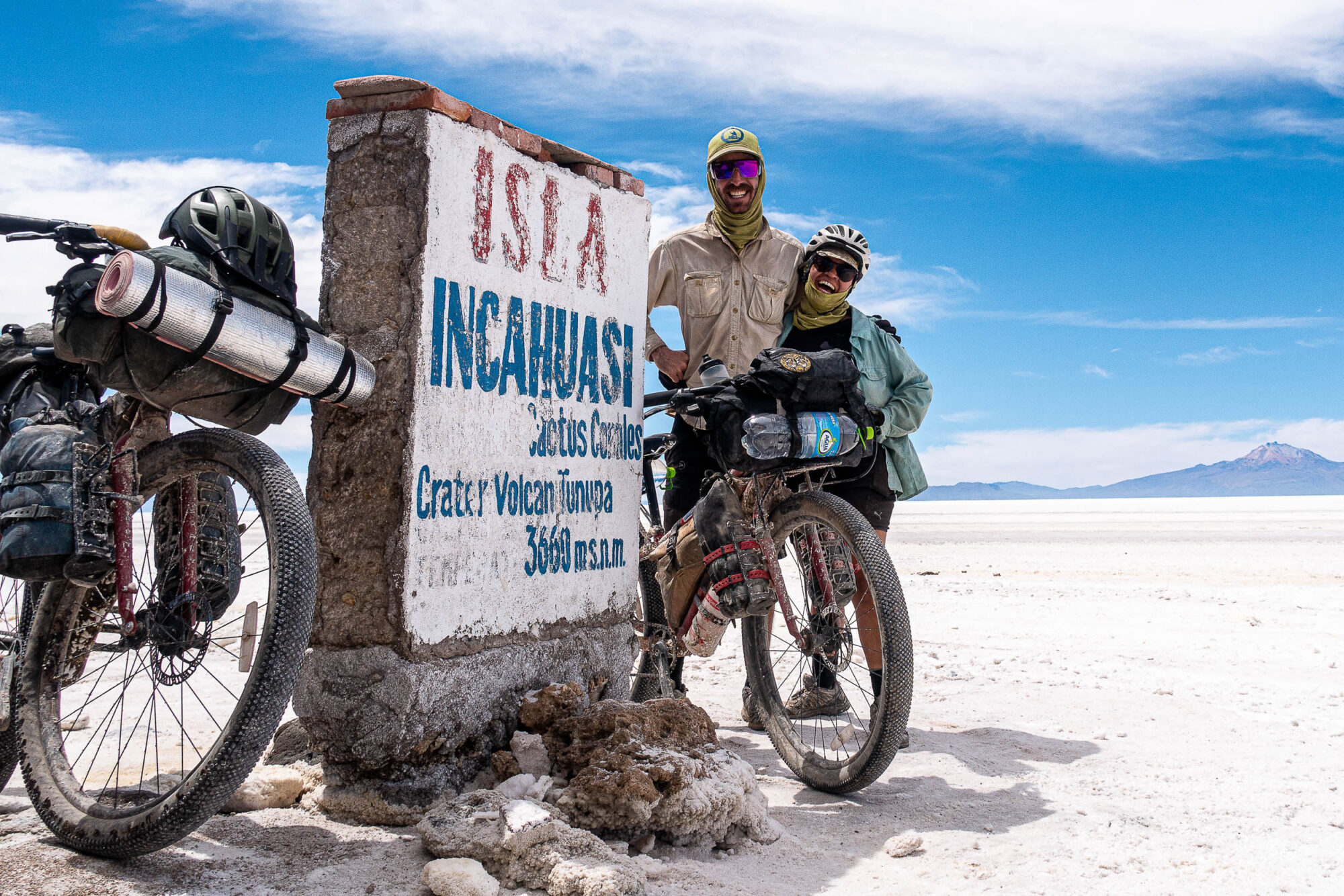
While Instagram might have you think that it was all rosy, we learned a lot along the way. What follows are some of the most important “soft skill” lessons we learned about how to survive a multi-year bike trip. Since we experienced the journey as a couple, I’ll write from that perspective, but we also learned a lot about ourselves along the way. I think some of these tips will also be useful for people traveling alone or with buddies.
Make friends (even if they’re dogs)
Spending months or years on a bike trip can be a very isolating experience. Sure, you’ll meet more people in the average day than you might have back home, but you’ll find that the repetitive conversations about why the heck you’re riding a bike that far, while almost always enjoyable, won’t replace even a boring evening at a bar with your friends. And if you’re riding through language barriers, you might even start to feel some wear and tear on your self-esteem as you inexplicably fumble through the 50th conversation about why you don’t have kids.
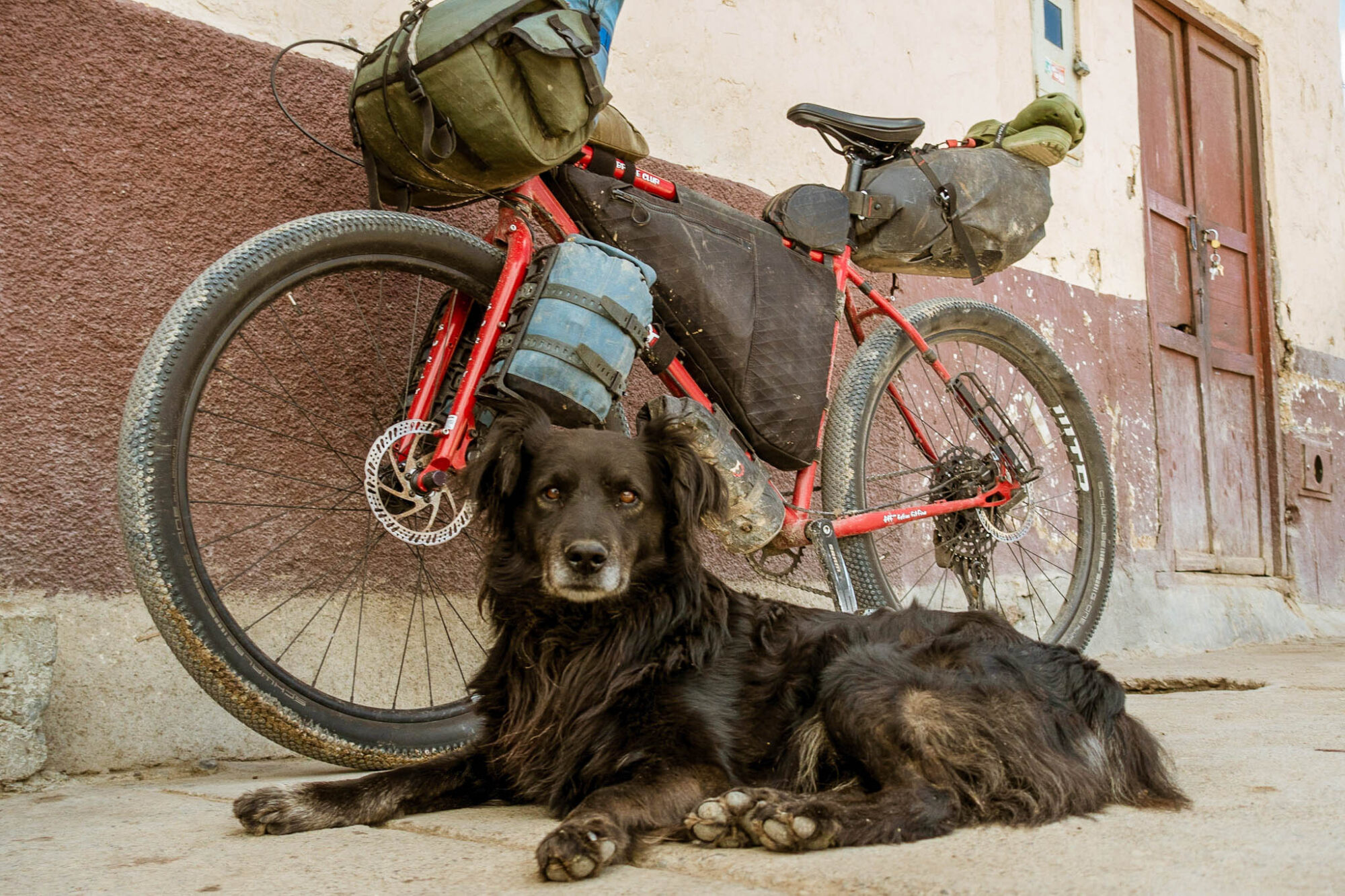
But finding other cyclists, especially if you can ride with them, is an instant antidote to this isolation. Even if you don’t share a common fluent language, you’ll automatically understand so much of each other’s strange experiences; and feeling understood is something you’ll be yearning for. You’ll know that they really get what it felt like to be served fried guinea pig in front of the whole Andean town, unlike your friends back home.
You can find others to ride with in a few ways. If you’re riding a popular route, especially at the right time of year, you might be able to depend on happenstance. There are also often Whatsapp groups for people riding in specific regions. Get yourself in the chat, and don’t be afraid to randomly ask if anyone happens to be nearby. Similarly, look for Facebook or Reddit groups for specific routes or regions. We also used Instagram to find local cycling groups, which led to hangouts with locals, route advice, free beers, and (unloaded) riding partners. On that note, when thinking about hitting the road with new friends, it helps to have similar setups and goals, but a willingness to ride with other people will outweigh most logistical hurdles.
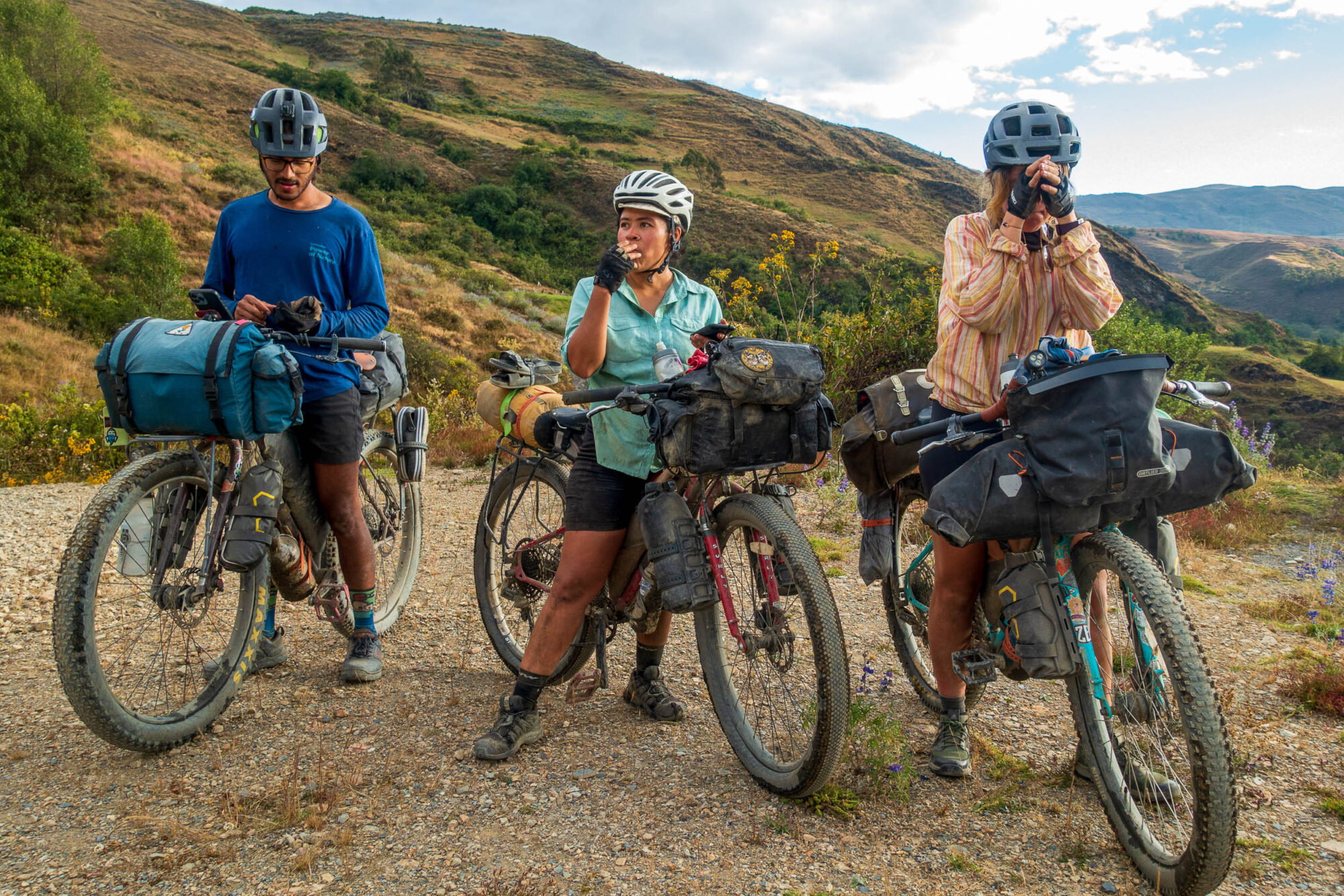
At least in Latin America, it also helps to go out of your way a bit to find casas de ciclistas, houses where traveling cyclists are universally welcomed. These places can feel like refuges if you haven’t felt a connection with new people in a while.
One final note on traveling with new people is that everyone thinks they’re the slow one. We went through our own struggles feeling like imposters who’d get left in the dust, and we found that just about everybody we rode with thought they’d be holding us back. And sure, some people like to go fast, but most people who are riding their bikes for months at a time value the camaraderie exponentially more than covering an extra 20 kilometers.
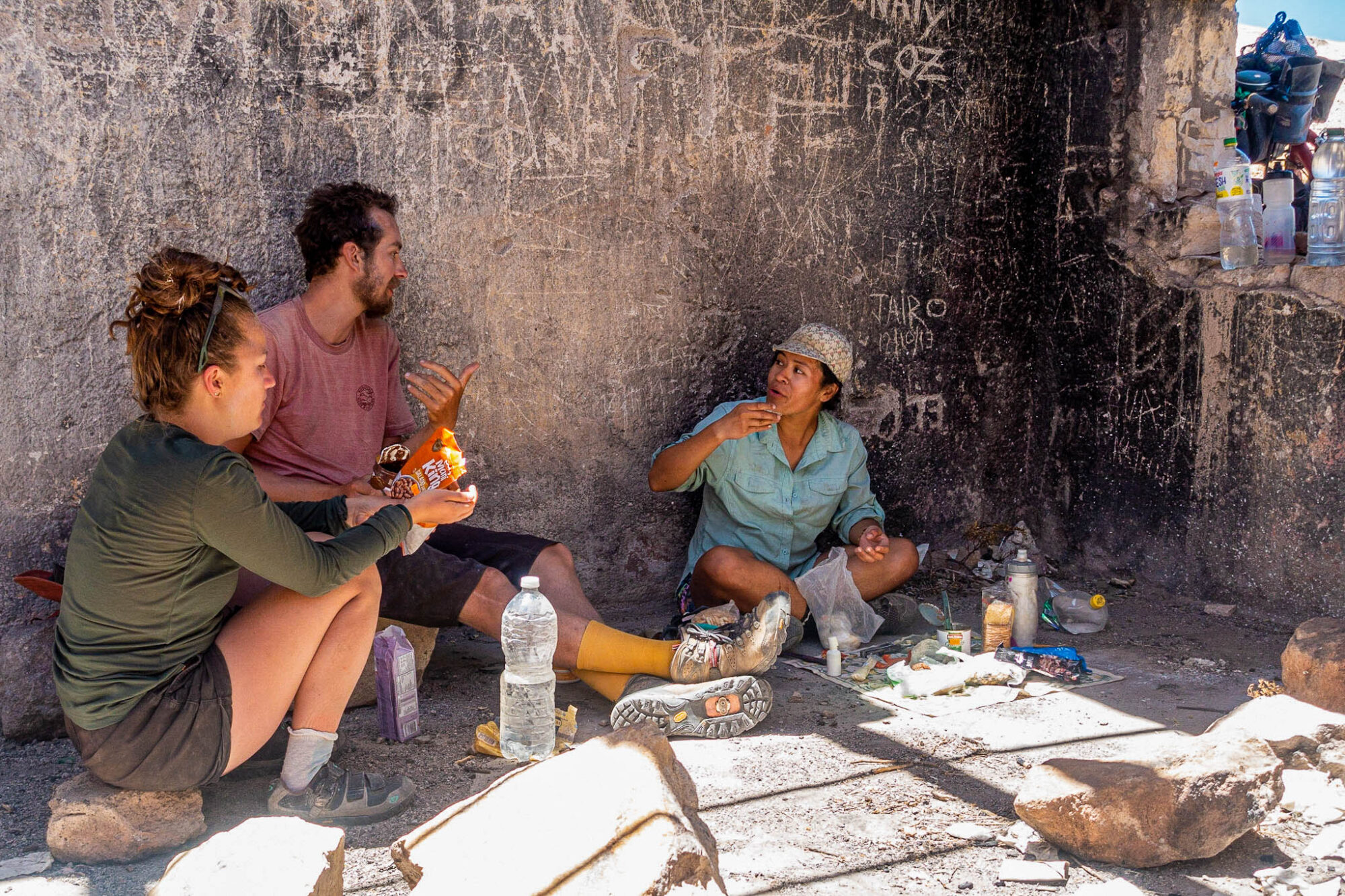
It’s helpful to share expectations with your riding buddies from the outset, if only for peace of mind (Are we always trying to stay together, or is it okay to just check in every hour or two?), but try not to let your insecurities stop you from riding with other people. Even a single day of riding with new people can pull you out of a funk (of your own, or with a partner), and it might shock you how quickly you can feel a deep bond with other long-distance cyclists. For us, riding with other people was a highlight of the trip that ranks right alongside the most stunning views and gloriously long downhills.
Before you and your new cycling buddies part ways, make a little Whatsapp group so you can stay in touch as a crew. They’ll be some of the few people who really want to hear about how terrible the cobblestone road was in Ecuador or empathize when you need to complain about the wind in Patagonia. It really helped us feel like we were part of a few new circles of friends!
Also, remember that you already have friends somewhere in the world! Something we learned along the way was how hard it was to predict precisely where we’d be a couple of months down the line. For us, that was fine, but we wanted our friends to come hang out too. The first few people who tried to visit us eventually gave up, since we could only give them vague answers like, “We should be somewhere in Bolivia by October.” Eventually, we committed to being in a particular place at a specific time, and a friend came to visit us in Cusco.
While we aren’t purists about riding every single kilometer, we were left with a bad taste in our mouths when we bussed through a section of the Peru Divide after falling behind schedule. However, I can now confidently say that an extra week on the route would have paled in comparison to the nourishment we got from seeing an old friend in a new place. So, the advice here is don’t let the unpredictability of your schedule stop you from making plans with loved ones. It will be worth it, and it will help you both put your relationship back in a familiar (and maybe forgotten) context.
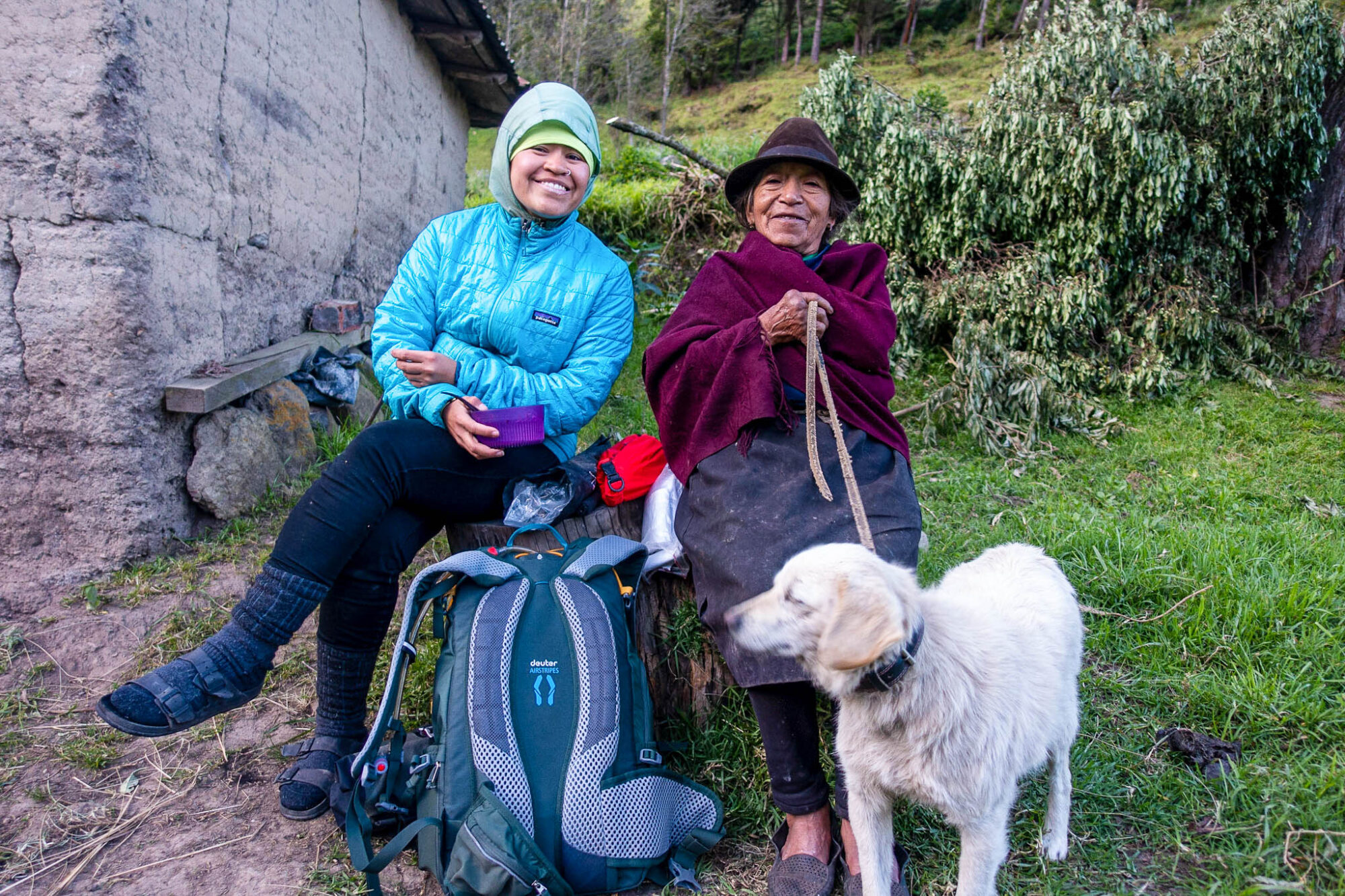
While the ideal friends are usually human, dogs are going to be your most eager companions. Unfortunately, depending on where you are, they might also be sworn enemies. The good news is that it won’t take long to figure out which extreme end of the relationship spectrum they fall on. Take time to give and receive love to the (friendly) street dogs, and you’ll find yourselves talking about them like old friends for months—wondering what they’re up to now, if they ever got around that fence, and why they didn’t eat the food you offered them.
The point here is that love and connection can be hard to come by on a trip like ours, and you can’t just depend on your partner for all of those needs.
Give yourself permission to hate it sometimes
For the first month of our trip, I had this nagging feeling that I always needed to be happy. I mean, how many people get to consider the day they don’t ride their bike a day off? How could you let anything bother you when the only reason you have to set an alarm is to get on your bike earlier? In our experience, while it’s important to remember how lucky you are, you simply can’t ride that high forever, and we found it helpful to come to terms with that. Sometimes, it really is too hot or too cold, but even when all the external conditions are perfect, let yourself be okay with having an off day. Kindly allowing yourself to have variation in your moods will help highlight that time when you and your partner were on the same wavelength bombing down singletrack as the sun was setting.
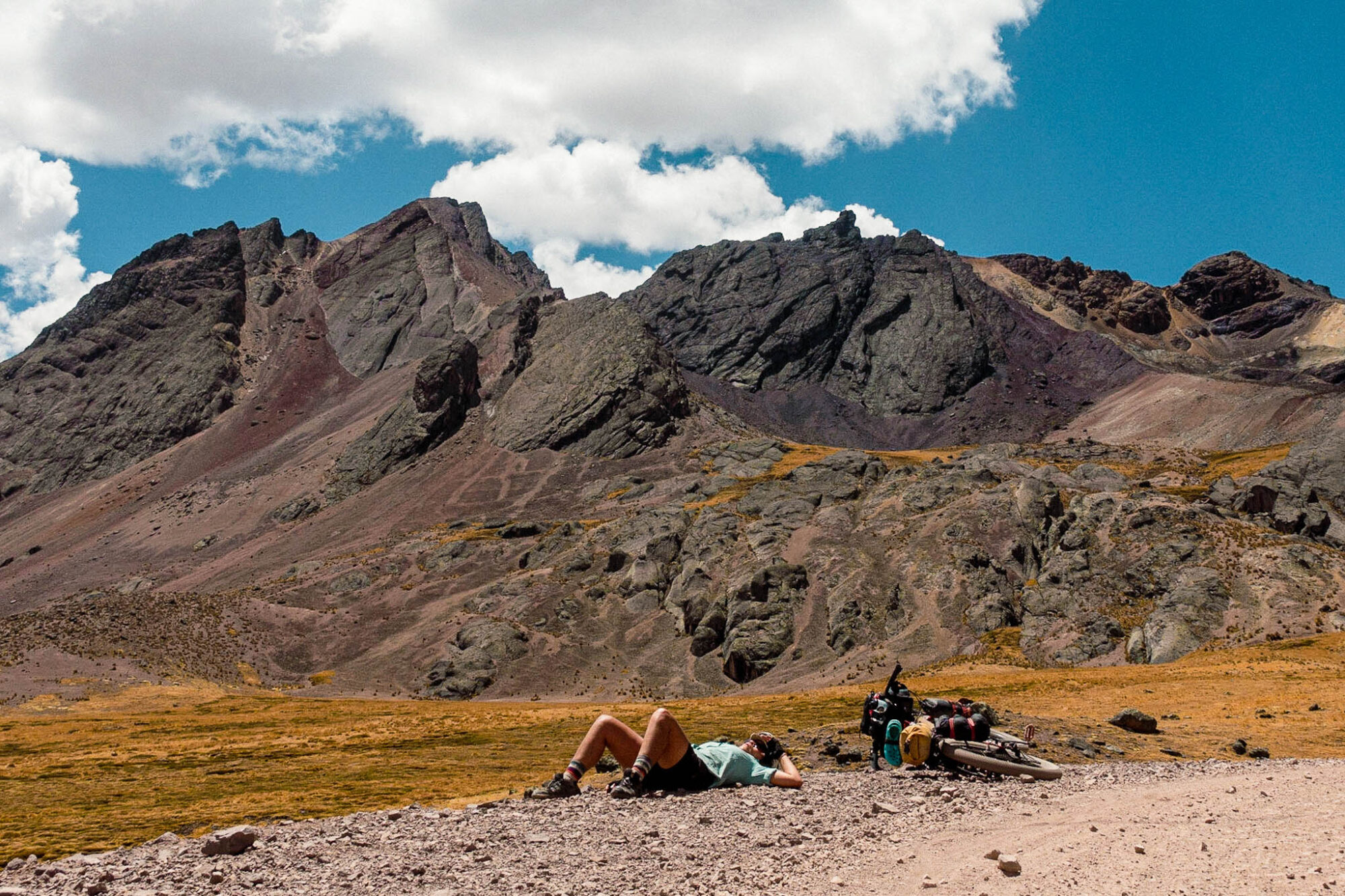
If you can’t be convinced to do it for yourself, do it for your partner. Think about how much you get from being able to offer them support, and allow them the gift of calling for an unexpected cookie break on your behalf.
Catch yourself (or your partner) before you hit rock bottom
Anyone who’s gone out for a long bike ride knows how easy it is to go from riding high to hating life. Developing an ability to catch yourself (or, tactfully, your partner) before slipping too far is an important skill to cultivate. A ten-minute stop—mixing some instant coffee into your water bottle and getting out of your head—pays significant dividends. We learned the hard way that the alternative of just trying to push through can easily spiral into, “Are you trying to leave me behind?!” or “I’m done. I just want to go home,” both of which are usually going to result in a longer break and probably some tears.
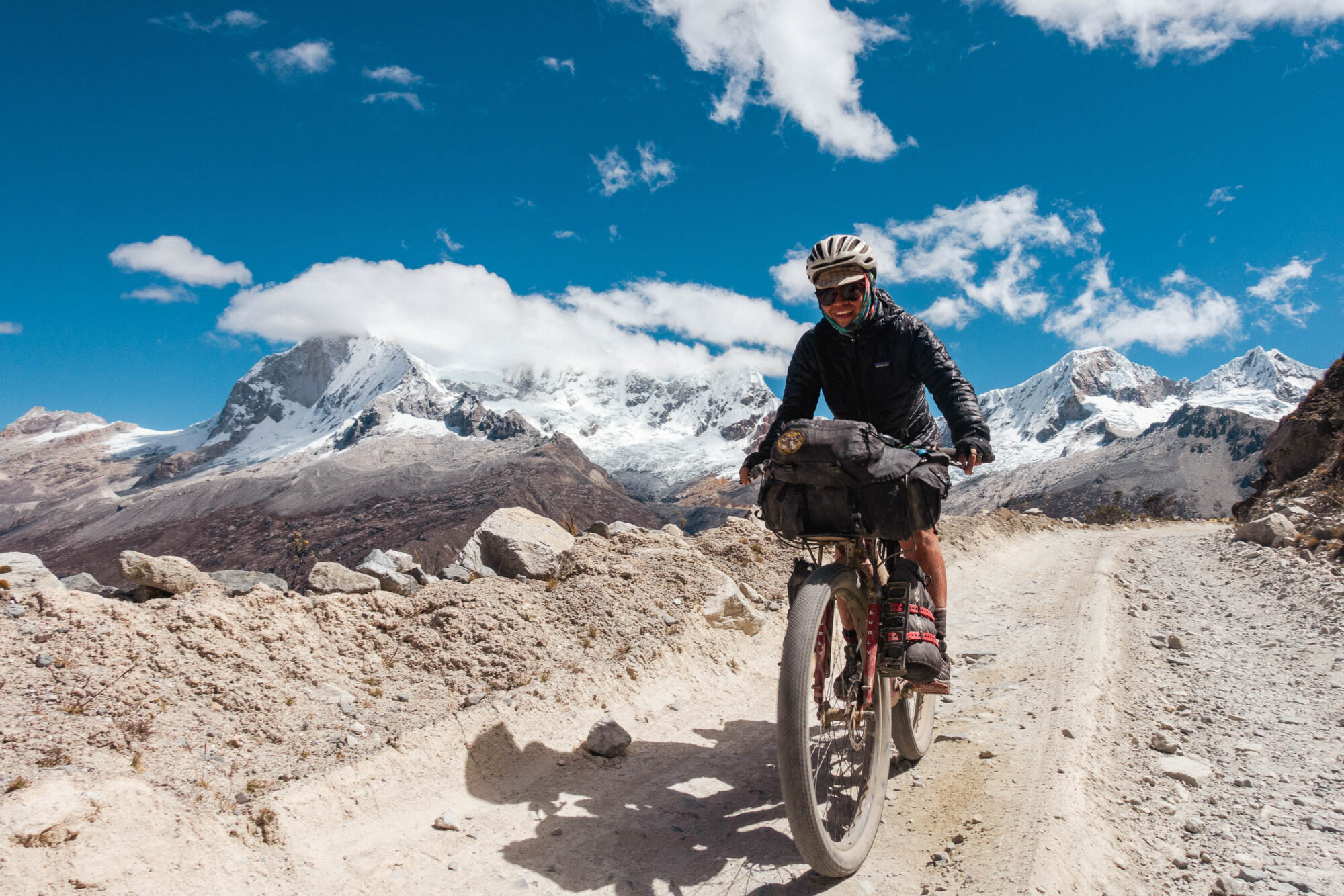
This is one of those areas in which your partner can probably check your temperature easier than you can. Not to point fingers (at myself), but in that moment, being annoyed by your partner’s unnecessarily high cadence may seem normal. So, if you can learn to trust that your partner knows when you need a break, even when you just want to get over that damn pass at all costs, you will both be spared some unnecessary anguish.
Something that took a while for me to learn (and I don’t seem to be the only guy who struggles on this front) is knowing what type of support to offer. It can be easier for some people to bypass emotions and immediately jump into “solution mode.” Andrea taught me that what she usually needs most when she’s struggling is emotional support. For example, when Andrea was having a bad morning, my burning desire to recommend shedding a layer should usually only come after a hug and some empathizing with how she’s feeling. She also helped me learn that I’m actually the same way when I can allow myself to sit with my feelings.
Switch up the chores
After a long enough stretch on the road, splitting up the daily responsibilities becomes a silent dance. I time my morning packing so that just as Andrea finishes stuffing her sleeping bag into its sack, I’m ready to catch it before it hits the tent floor on my way to the handlebar bag. We settle into the chores that we’re either “good” at or that we just like seeing done a certain way. For the most part, I think that’s fine. However, we found a lot of value in occasionally changing things up so I could have epiphanies like, “Oh yea, it does take more of an effort to nicely lay out the sleeping bags,” and Andrea could see that cooking lentils night after night is more involved than she remembered. Switching up the chores, even every once in a while, helped us appreciate the other person’s contributions in a way that might slowly erode without hands-on experience.
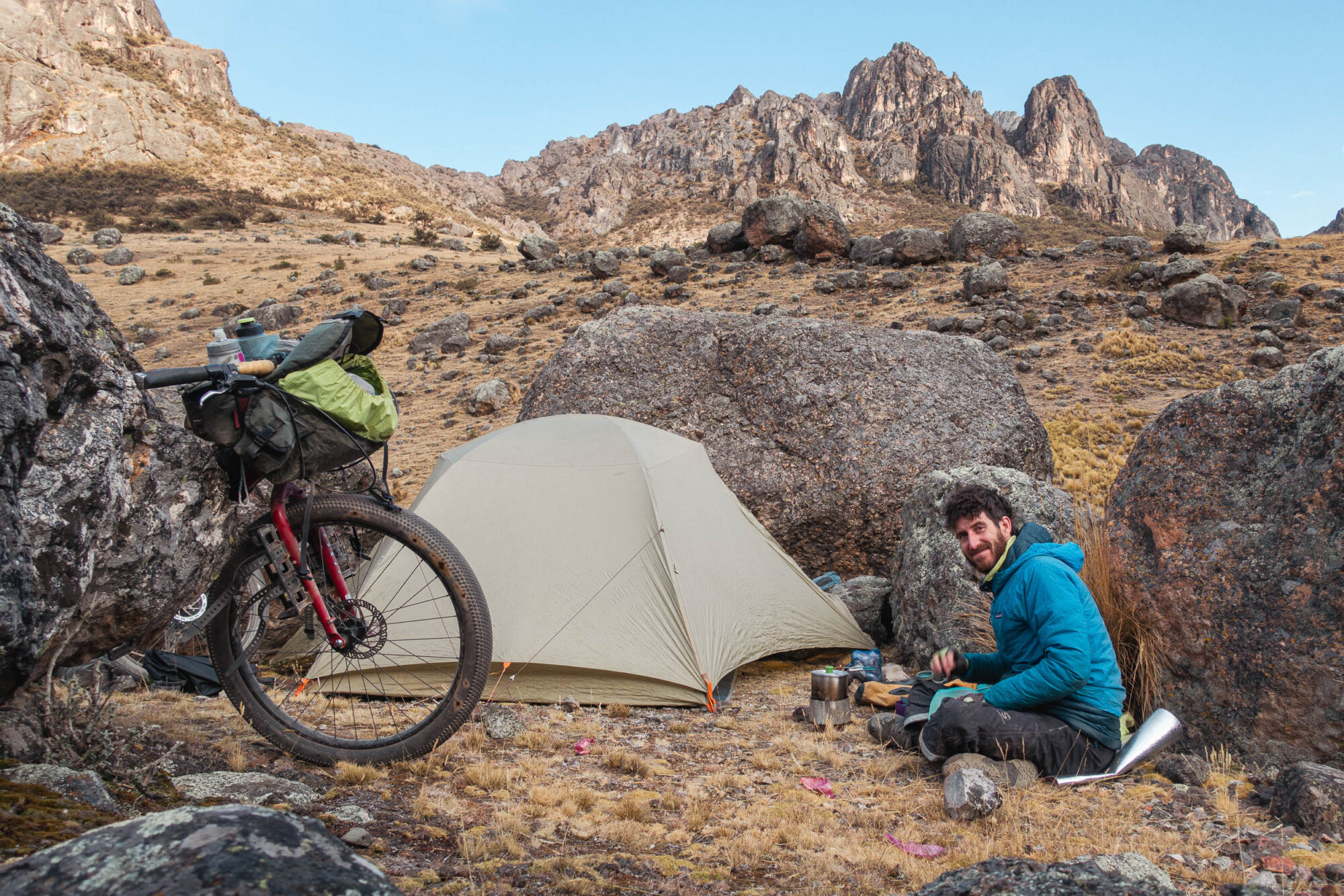
Find ways to have unique experiences
Recommending unique experiences might be surprising advice while you’re on the adventure of a lifetime, but spending all of your time with one other person means that almost all of your daily experiences will be shared. You might even strangely find yourself wanting to tell your partner a story in which they are the main character. If you have even an ounce of extrovert in you, it can be frustrating not to have anything new to share with your partner. It could even make things feel stale between you, or simply make you feel a bit bland. And when you’re constantly in strange new places, it can be really easy to seek shelter in each other, grasping onto the one element of familiarity.
For the most part, that’s one of the beautiful parts of undertaking a big trip with a partner. You have someone to brave it all with. Even so, we found it invaluable to have some of our own experiences. Simple things like going to the store or a restaurant alone can result in a little bit of fresh news to share with your partner. Staying in touch with friends and family back home will also bring some interesting information into your potentially shrinking interpersonal world.
I also wake up much earlier than Andrea. Eventually, I learned that, rather than reviewing the day’s route a dozen times, diving into a book would both help the time pass and transport me into a new world for a half hour at a time. Andrea also appreciated not feeling like I was waiting for her every morning.
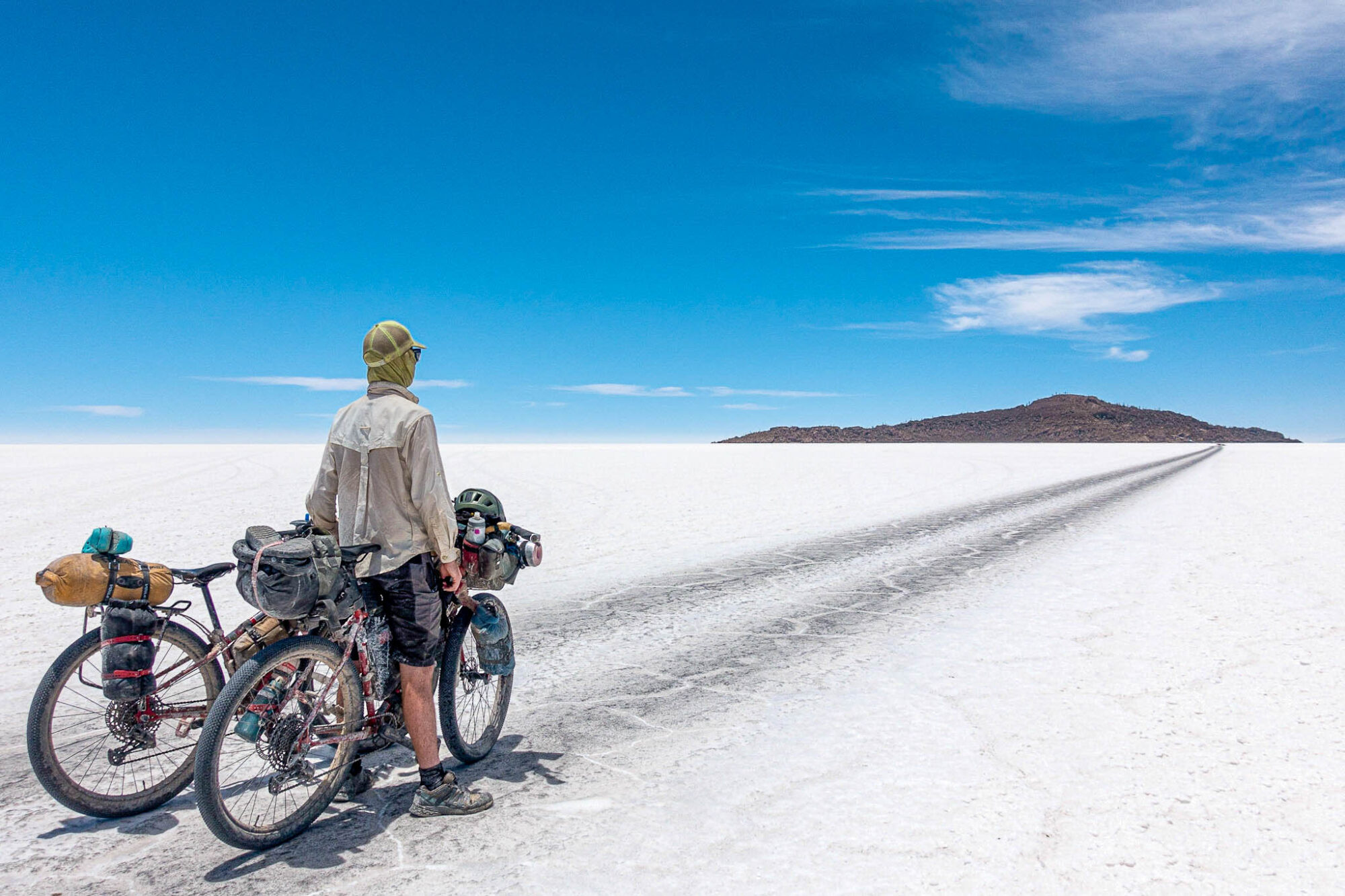
Finally, something that deserves special mention is listening to podcasts. The idea of listening to podcasts isn’t going to be revolutionary to many people, but it is an excellent way to stay connected to the broader world and learn something new to share with your partner. The reason they’re getting a shoutout is that Andrea and I both felt strange at first about using earbuds while we rode with each other. It’s worth noting it should only be done when the environment allows for a bit of auditory distraction, but in my immature mind, closing off a bit from the immediate surroundings felt like giving up on going through the experience together. If you feel like that, it’s important to remind yourself how much intentional time you’re already spending with your partner and that a trip like this calls for some particular accommodations. What I gained from (occasionally) listening to podcasts while riding helped me both feel like a separate person from Andrea and gave me something interesting to talk to her about afterward.
We eventually set some guidelines for earbuds. We made sure to run it by the other person before using them, and we agreed that the first few hours of riding each day would be earbud-free. Finally, we made sure we hit pause on whatever we were listening to during all of our breaks. These may come across as simple or unnecessarily rigid, but it actually took us time to settle on these agreements.
Be proactive and intentional
As you might have already deduced, Andrea and I are both sensitive people. So, we may go a little overboard on this, but regularly setting aside time to check in can be hugely beneficial. We tried to have weekly conversations, no matter how we were feeling, in which we asked each other a few questions, like, “What was something I did last week that helped you?” or “What kind of support do you think you’ll need this week?”
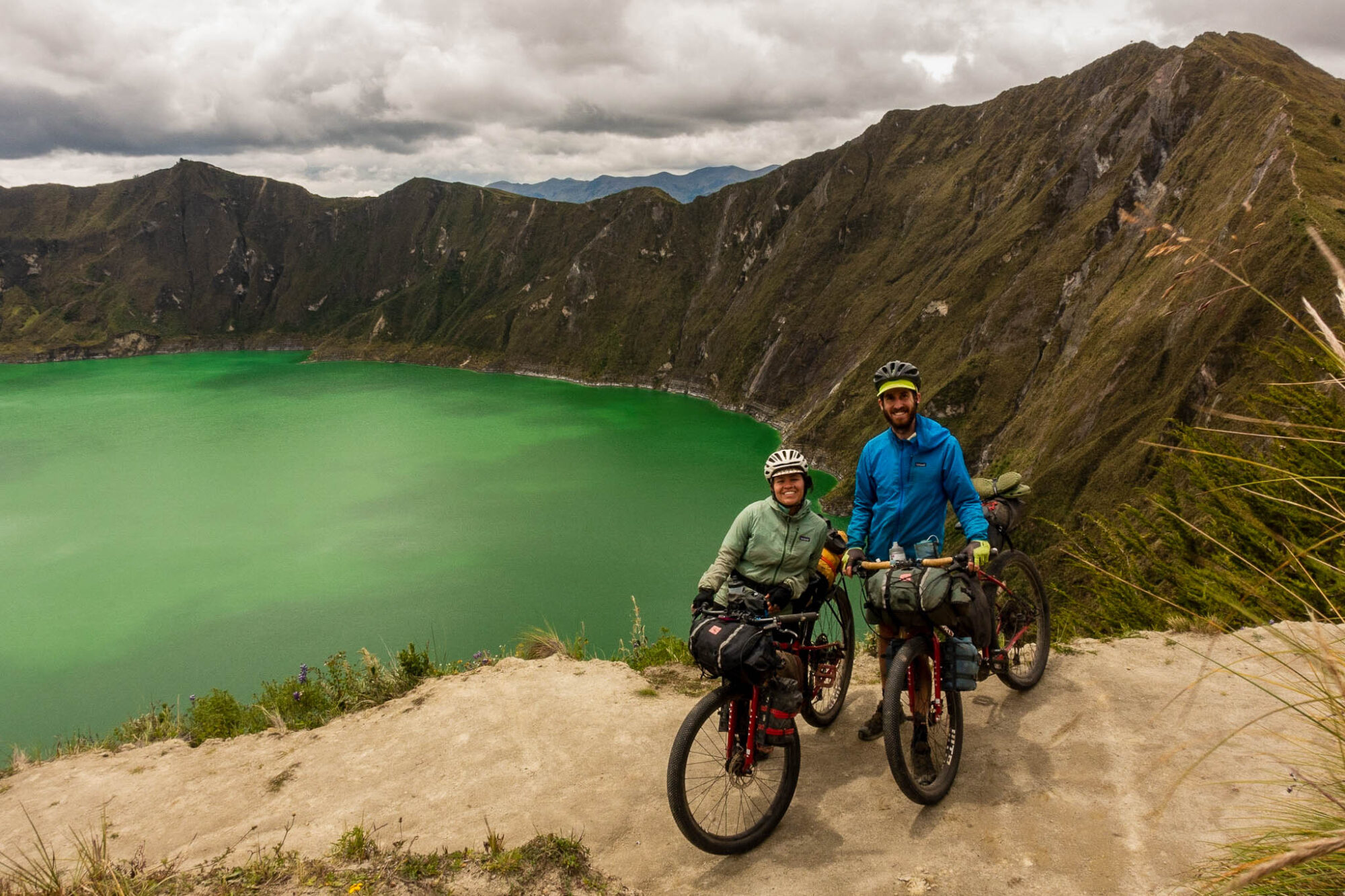
We also tried to do a deeper dive every couple of months, often to simply stay on the same page. Of course, we’d talked about life goals, childhood experiences, and insecurities before, but a trip like this can change the way you see the world in pretty dramatic ways, and we found it useful to intentionally process some of it together. There are many helpful guides for these conversations online, so you don’t have to reinvent the wheel.
In conclusion
This all may have come across as overly cautionary—I mean, my partner and I love each other!—and maybe it is for you. But I’ve heard enough stories of couples going their separate ways during or immediately after long trips to think that our experience isn’t out of the ordinary. Andrea and I struggled. A lot. And we’d do it all again because it was also one of the most unbelievable experiences of our lives.
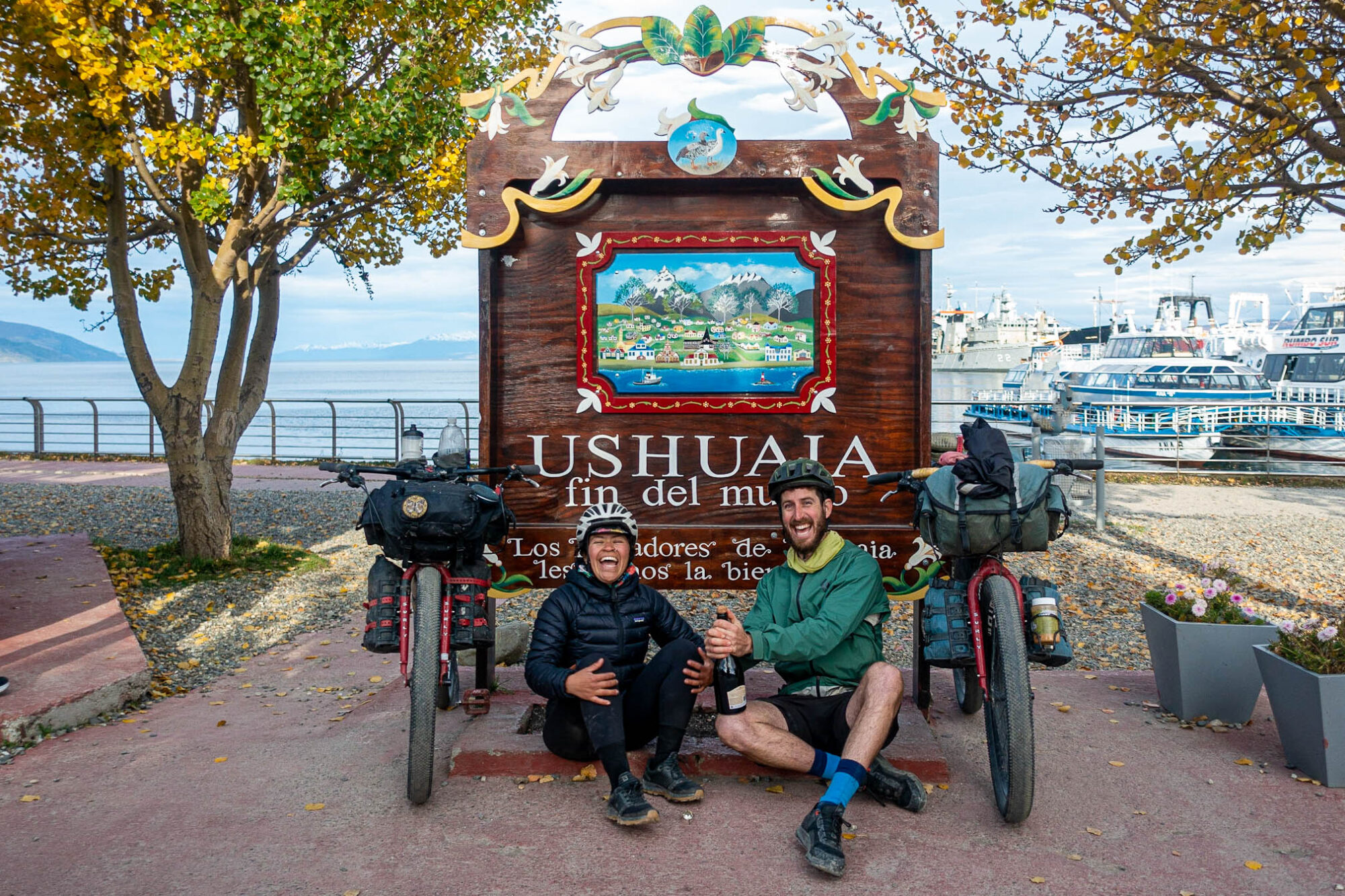
On top of that, the lessons we learned about being in a relationship and the intimacy we gained from going through this adventure together are potentially incomparable. Looking back, it was probably a riskier undertaking for our relationship than we had expected, but hopefully, we’ll continue to reap the rewards for many years to come.
Further Reading
Make sure to dig into these related articles for more info...
Please keep the conversation civil, constructive, and inclusive, or your comment will be removed.




